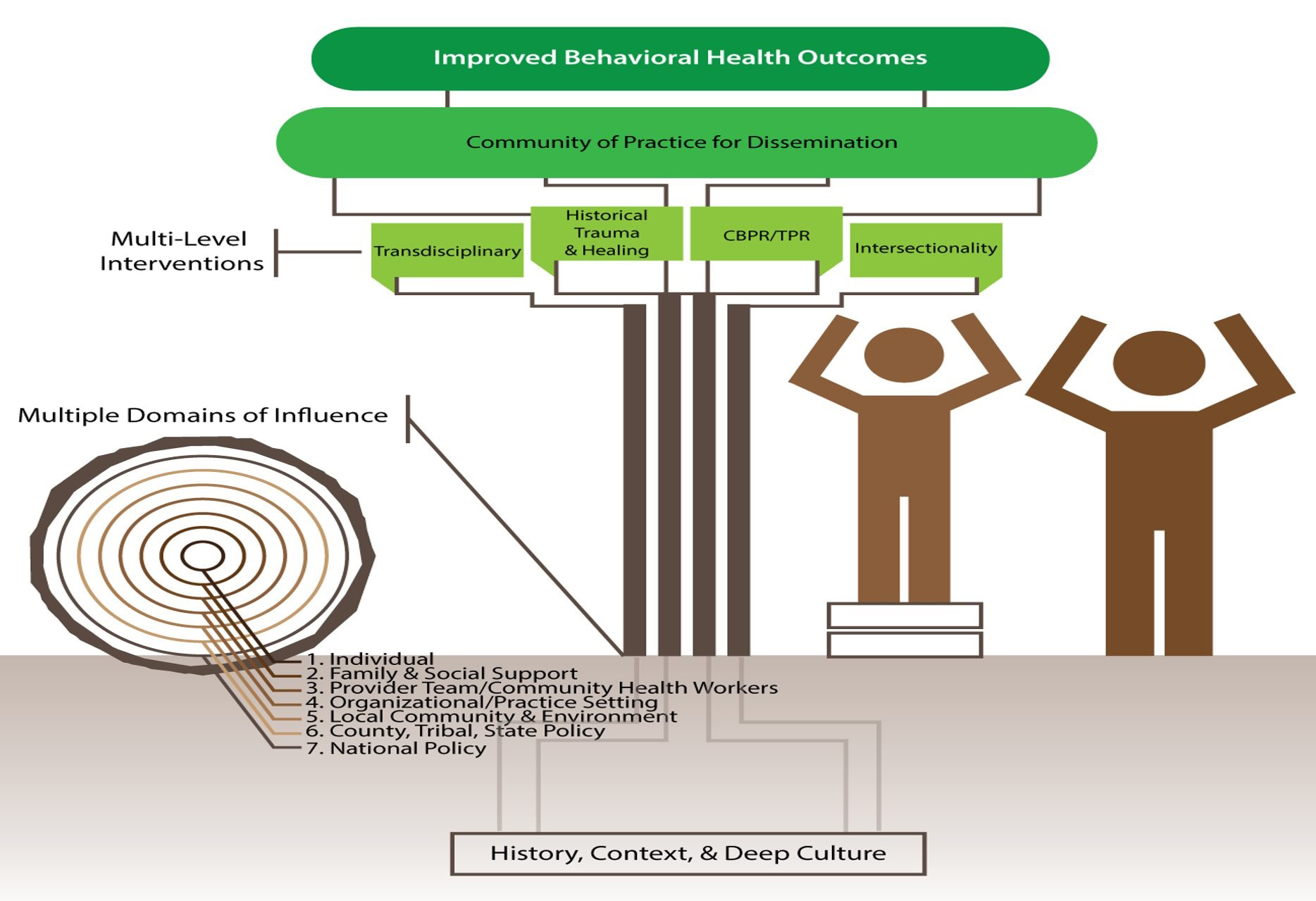
The TREE Center Administrative Core co-developed a health equity manifesto in 2023, guiding future directions for research, engagement, and healing. “We will unite our vision, voices and relationships to strengthen collaborative partnerships and sustain our cultural practices, values and beliefs for our next generation. We promise to teach the next generation and our communities about the history of inequity and resistance and how to be leaders that interrupt narratives and policies that are rooted in racism and oppression. These principles are imperative to expanding knowledge, increasing our collective critical consciousness and moving towards sustainable change that advances health equity for all.”
Our Center’s transdisciplinary academic-community team science will specifically highlight the social determinants of behavioral health, including Adverse Childhood Experiences, historical trauma, and intersectional effects of poverty and discrimination to improve conditions and outcomes related to youth suicide, alcohol and drug misuse, depression, and access to behavioral health services. The four overall aims are to:
Our conceptual framework highlights the relationships between health equity, history/context and deep culture, multiple domains of influence, multi-level interventions, dissemination of research through a Community of Practice for Dissemination (COP4D) and anticipated impact on behavioral health outcomes.
Our TREE Center’s work recognizes that behavioral health outcomes are deeply embedded in the history, context and culture of place and people in New Mexico as illustrated in the roots of the TREE.
Our conceptual framework also illustrates the influences of multiple domains on the health of populations as depicted in the TREE trunk. We embrace multi-level transdisciplinary interventions that draw from theories of historical trauma and intersectionality, and community engaged research approaches.
Anchored in Community-Centered Dissemination Science, our TREE Center will actively engage with a larger Community of Practice for Dissemination to translate research findings to practice and policy. Our anticipated outcomes include improved mental and behavioral health conditions as measured through our research and pilot projects and by the data unit described in the Administrative Core.
Provides leadership for the center’s overall strategic inspiration, vision and oversight using a community-based multi-level intervention approach as well as the core principles of transdisciplinary research.
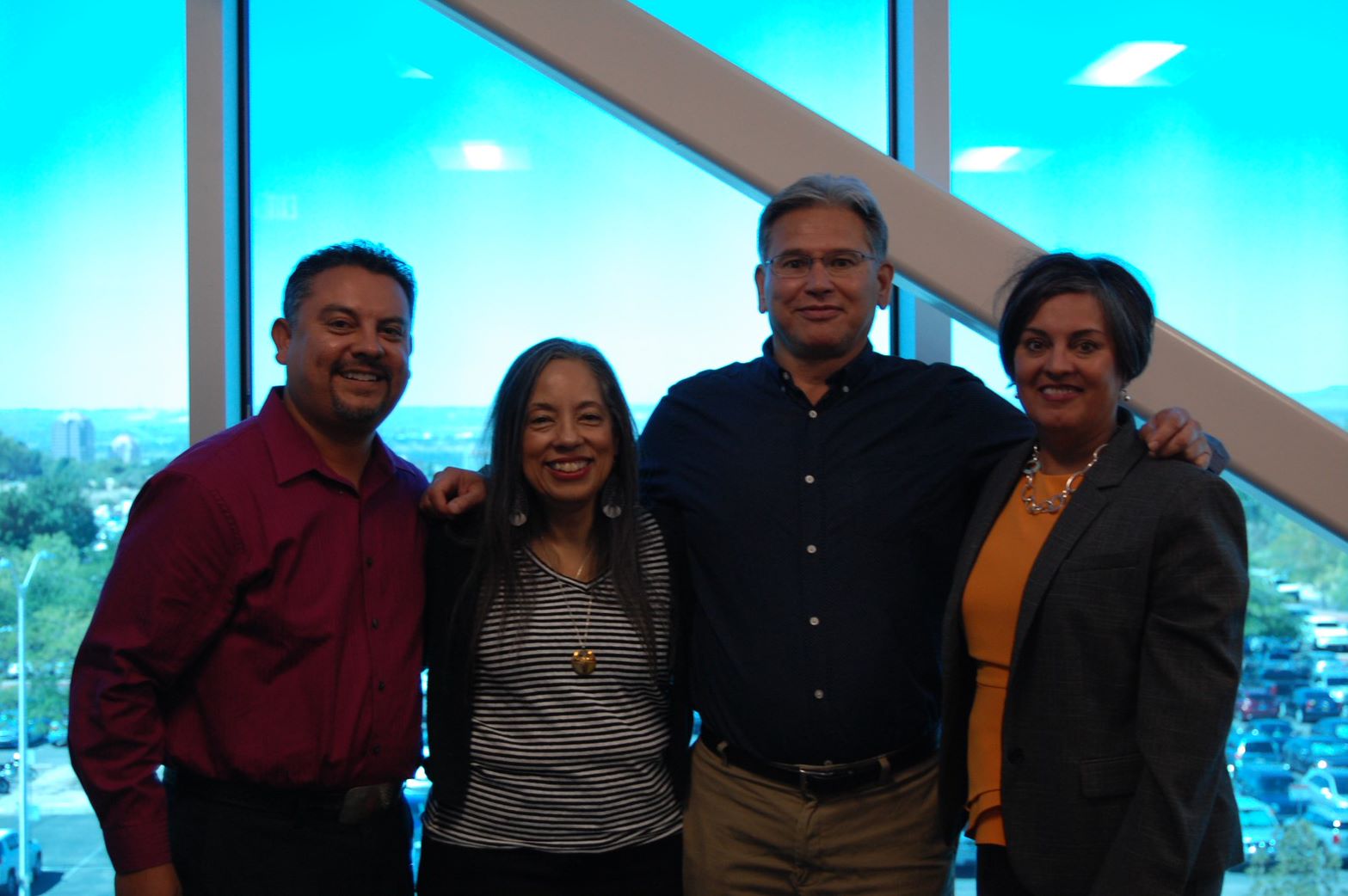
Aim 1. Develop center procedures ensuring the implementation of all aims, and maintaining compliance with policies and procedures.
Aim 2. Launch and support the Community, Scientific, and Policy Advisory Committee (CSPAC); coordinate bi-directional communications; foster dissemination of cultural knowledge and research evidence.
Aim 3. Provide administrative support, vision, and oversight of the research and pilot projects.
Aim 4. Coordinate career enhancement activities to promote the recruitment, development, and retention of diverse investigators to create a sustainable pipeline of multi-level transdisciplinary behavioral health.
Aim 5. Evaluate the Center outcomes with annual member surveys, retreats, and documentation of key priorities; develop a standard set of common data elements and measures at multiple domains.
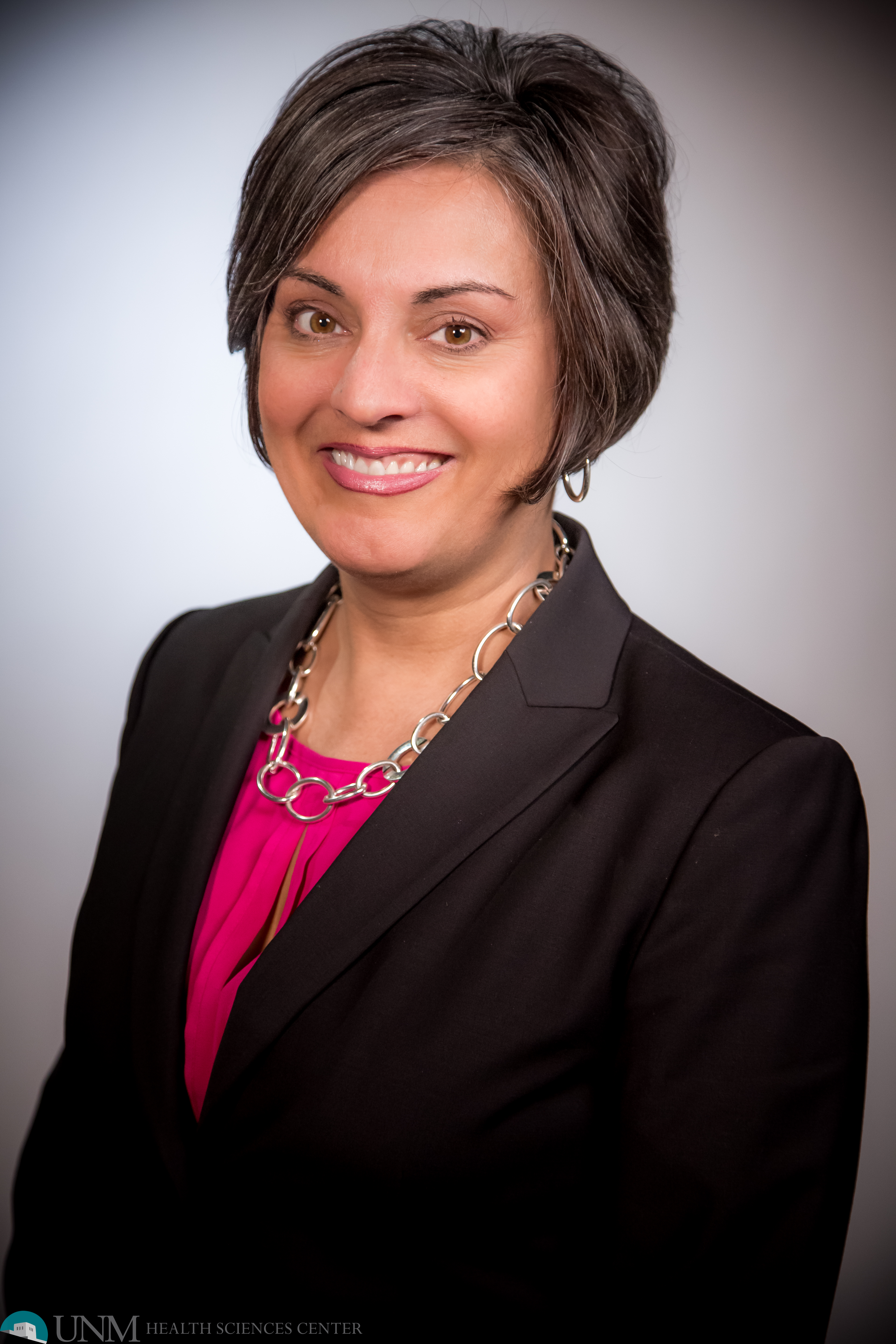 Lisa Cacari Stone, PhD, (purepecha/mestiza), Professor, College of Population Health
Lisa Cacari Stone, PhD, (purepecha/mestiza), Professor, College of Population Health
TREE Executive Director/PI
Email: LCacari-Stone@salud.unm.edu
Dr. Cacari Stone has dedicated over 30 years of population health science aimed at advancing health equity for diverse racial, under-resourced, rural and Latinx and immigrant populations.
She brings direct experience in health policy, child and social welfare as a former licensed behavioral health provider, director for a home visiting child welfare program, director of senior services, executive director of a rural federally qualified mental health clinic, state health officer and federal women’s health liaison with the U.S. Department of Health and Human Services and policy fellow with the Health Education, Labor and Pensions Committee and Senator "Ted" Kennedy.
Her scholarly portfolio is comprised of over $26 million in grants from private and public funders and encompasses the macro-level determinants of health (e.g. health reform, immigration policies), to the community level (e.g.Tool for Health and Resilience in Vulnerable Environments in frontier border communities), to the interpersonal level (e.g. role of promotores de salud in bridging patient-provider communications).
She has written multiple articles (i.e. Health Affairs, American Journal of Public Health, Academic Medicine) and policy reports and delivered over 100 research presentations to academic, community and policy audiences at the national, binational and state/local levels. Dr. Cacari Stone came to UNM after completing prestigious fellowships with the top thought leaders in social determinants of health at Harvard and training at the top-rated health/social policy school in the nation- Heller, Brandeis University.

Theresa H Cruz, PhD
Email: Thcruz@salud.unm.edu
Dr. Cruz is Co-Director of the TREE Center’s Investigator Development Core (IDC), developing and implementing a successful pilot research project program. She is a Research Associate Professor in the UNM Department of Pediatrics, and an Epidemiologist and Deputy Director of the CDC-funded University of New Mexico Prevention Research Center (PRC).
She is involved with the UNM PRC Education and is Training Core Lead with experience developing and implementing training for faculty, staff, students and community partners. Dr. Cruz’s research interest and expertise are: Community-engaged research, translation and dissemination research, primary prevention, and injury and violence prevention, particularly in the areas of adverse childhood experiences, prescription drug overdose, sexual violence prevention and suicide prevention.
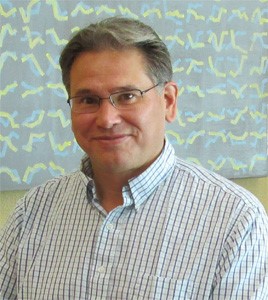
Steven Verney, PhD, Associate Professor, Department of Psychology
Email: sverney@unm.edu
Dr. Verney is Alaska Native (Tsimshian) and an Associate Professor in the Department of Psychology. He is a Co-Principal Investigator (Co-PI) on UNM TREE Center for Advancing Behavioral Health, an NIH Center of Excellence in Health Disparities. He has been involved in several studies investigating cognitive aging and
decline in older American Indians, and is the PI on two Native health disparities projects.
He is also involved in other funded projects investigating health inequities cerebrovascular disease, Alzheimer’s disease and related disorders, and related risk factors in older American Indians. Dr. Verney has a broad background in psychology, with specific training and expertise in neuropsychological assessment, cultural psychology and mental health and has mentored a variety of underrepresented students including undergraduate, graduate, and post-doctoral students.
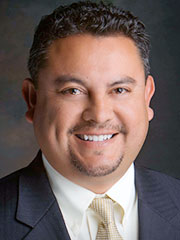 Gabriel R. Sanchez, PhD, MPI Years 1-4, Professor, Department of Political Science
Gabriel R. Sanchez, PhD, MPI Years 1-4, Professor, Department of Political Science
Email: rypsanchez@salud.unm.edu
Dr. Sanchez is the Executive Director of the UNM Center for Social Policy, co-Founder, the UNM Native American Budget and Policy Institute, and Director of Graduate Studies, the UNM Department of Political Science.
Dr. Sanchez is an expert on politics in the Southwest having directed many research projects and polls for Latino Decisions in New Mexico, Colorado and Arizona and he has been invited to give talks and presentations at the Congressional Hispanic Caucus Institute, LULAC, AFL-CIO, the Democratic Congressional Campaign Committee (DCCC), and often serves as an expert policy advisor to the New Mexico State Legislature.
His research explores the relationship between racial/ethnic identity and political engagement, Latino health policy, and minority legislative behavior. Sanchez has published more than fifty scholarly research articles, chapters and books that examine minority public opinion, electoral behavior and racial and ethnic politics more generally in the United States.
Dr. Sanchez is the author of the recent book Latinos and the 2016 Election: Latino Resistance and the Election of Donald Trump, and is currently working on the second edition of this book that will focus on the 2016 election. Dr. Sanchez is also coauthor of Latino Politics of America: Community, Culture and Interests, a textbook on Latino politics that will be ready for order in Fall 2020.
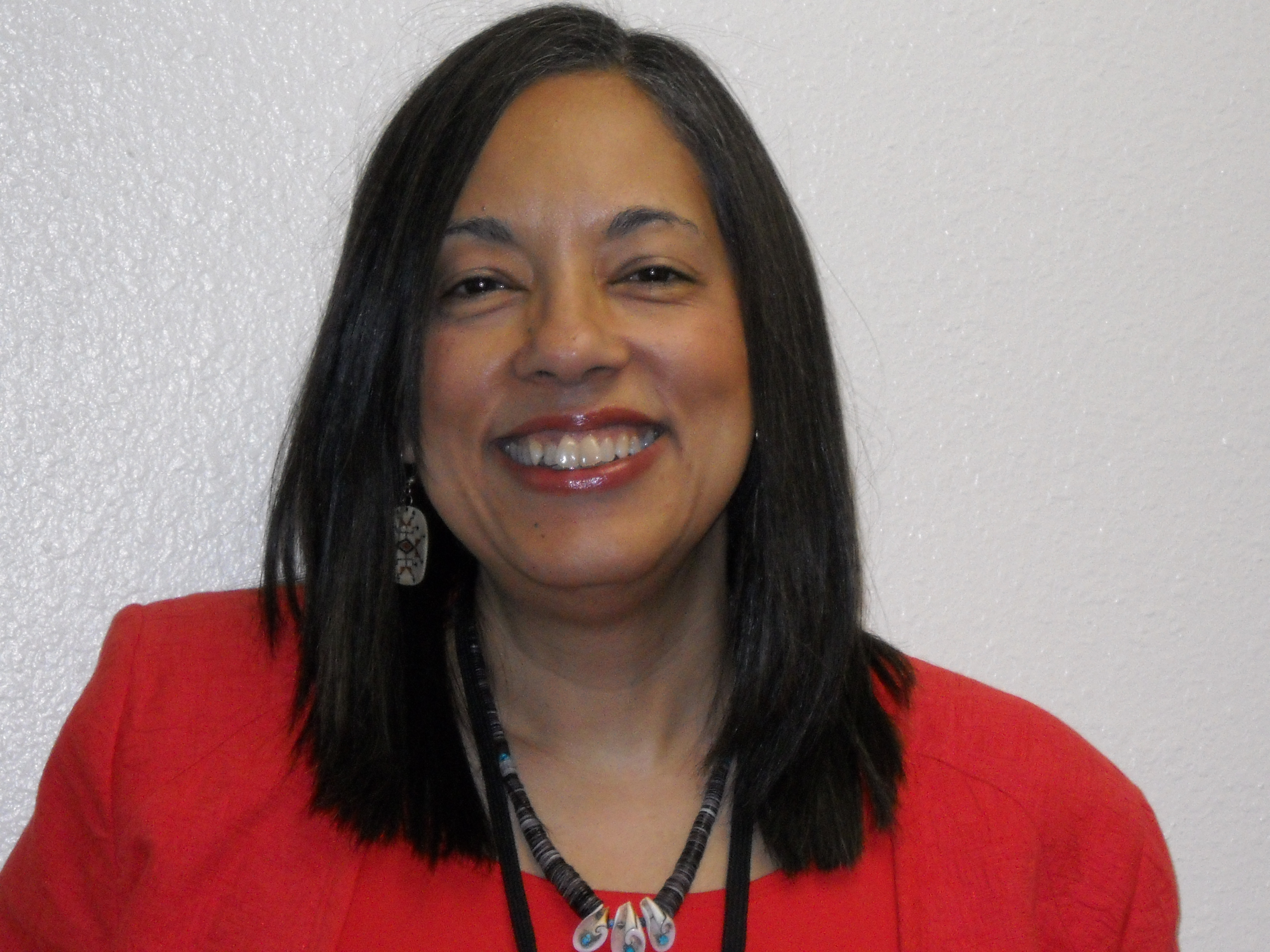 Maria Yellow Horse Brave Heart, PhD, MPI Years 1-4
Maria Yellow Horse Brave Heart, PhD, MPI Years 1-4
Email: MBraveHeart@salud.unm.edu
Dr. Brave Heart (Hunkpapa and Oglala Lakota), is an Associate Professor/ Clinician Educator, at the UNM Department of Psychiatry and Behavioral Sciences, and is a Co-PI for the UNM TREE Center for Advancing Behavioral Health, and NIH Center of Excellence in Health Disparities.
Dr. Brave Heart was the Principal Investigator (PI) of the NIMH R34 Randomized Pilot Clinical Trial: Iwankapiya (Healing): Historical Trauma Intervention and Group Interpersonal Psychotherapy. This study compared two outpatient group psychotherapy models for depression and PTSD symptoms in two tribal sites: a Northern Plains reservation and a Southwest urban American Indian clinic. Dr. Brave Heart was also a PI on the NIMHD Mescalero (Apache) Tribal Preventive and Early Mental Health Intervention (with high school reservation youth, focused on suicidal risk).
Dr. Brave Heart developed the field of historical trauma interventions for American Indians and Alaska Natives and founded the Takini (Survivor) Network/Takini Institute in 1992. Her prior academic appointments include – Associate Professor, University of Denver Graduate School of Social Work; Associate Professor, Columbia University School of Social Work, and affiliate with New York State Psychiatric Institute/Columbia Medical School.
Dr. Brave Heart is the author of multiple papers dedicated to understanding historical trauma, unresolved grief and healing for diverse American Indian and Alaska Native communities, and implications for other traumatized, oppressed populations, particularly those across the Americas.
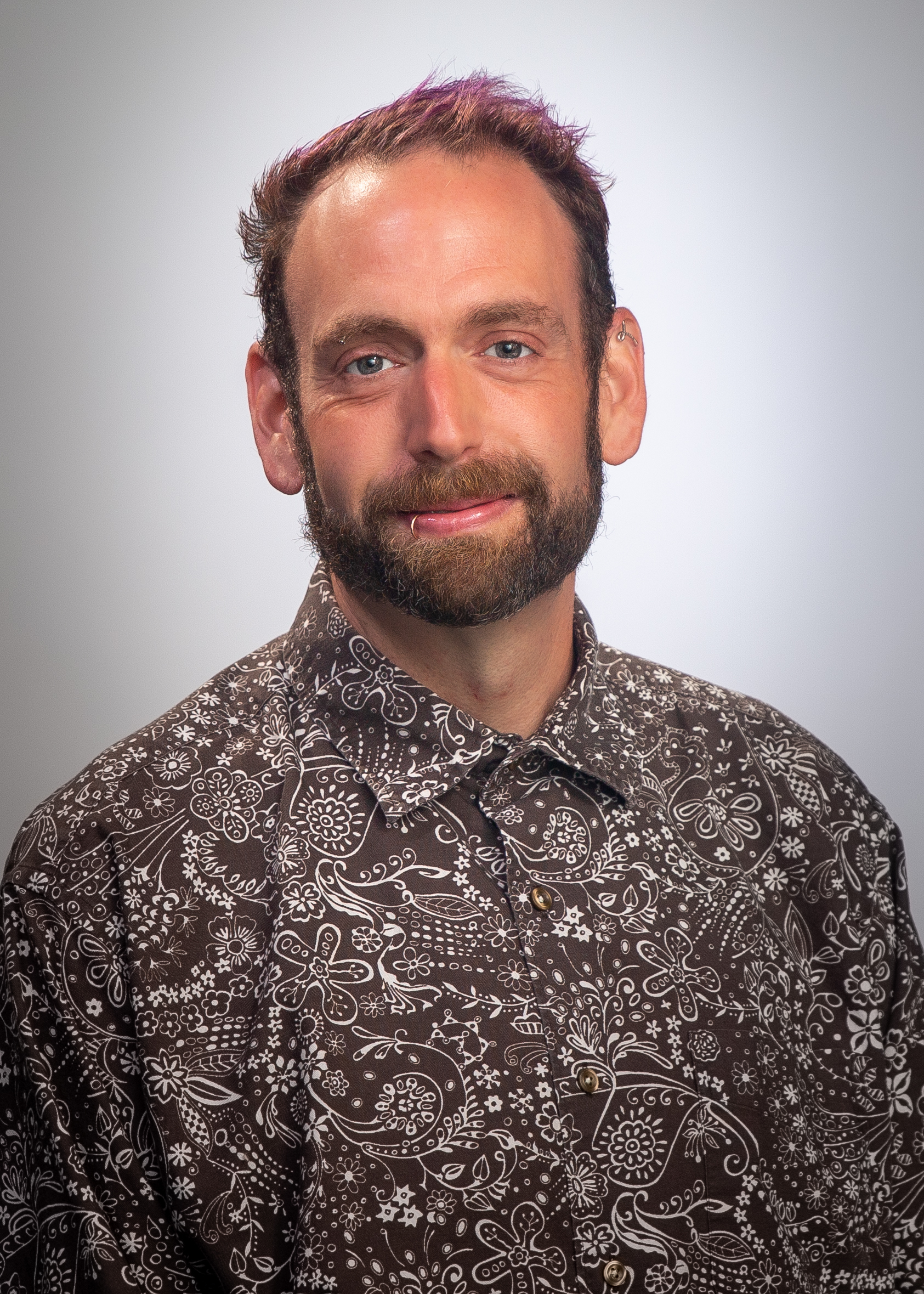 Blake Boursaw, Sr. Research Scientists, UNM TREE Center
Blake Boursaw, Sr. Research Scientists, UNM TREE Center
Email: bboursaw@salud.unm.edu
Blake's research focuses on using his deep, conceptually rigorous training in pure mathematics as a platform for employing a range of techniques, including innovating modeling strategies, to respond to analytic challenges that arise in equity-oriented research in novel ways.
The TREE Center has been an important academic home for advancing this research trajectory, building skills and making new connections. When not conducting research, Blake enjoys the splendor and beauties of New Mexico."
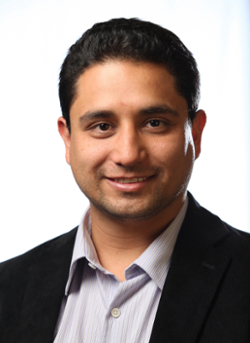
Carlos Antonio Linares Koloffon
Email: CLinaresKoloffon@salud.unm.edu
Dr. Carlos Linares Koloffon, MD, MPH. His research interests involve the study of intersectionality between ethnicity and socioeconomic status in population health outcomes, clinical and social outcomes, border health, and policy dynamics, with a focus on mixed method methodology, evaluation of organizations, project management and geographic information systems. He has experience in cardiovascular and kidney disease research and community engagement. He obtained a master’s in public health degree at UNM, in addition he completed a one-year fellowship in evaluation of organizations in the department of economics. Currently, he works as a Research Scientist 2 at the UNM TREE Center and the WEAVE NM study.
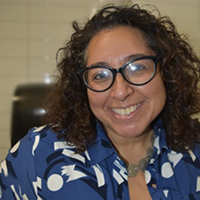 Daisy V. Rosero, MPH
Daisy V. Rosero, MPH
Email: drosero@salud.unm.edu
Daisy is a bilingual, Latine, Public Health professional with a broad knowledge base and background in program implementation, evaluation and research. Over the past 15 years, she has worked with minority populations on topics related to youth and adult alcohol prevention, advocacy, and agricultural occupational health. She is dedicated to facilitating cross-discipline collaborative opportunities to tackle issues of health and sociocultural inequities. Daisy is a Research Scientist at the TREE Center and collaborates with TREE Center faculty to assist with data collection, analysis, evaluation and reporting.
Email: thachavez@salud.unm.edu
Thomas A. Chávez, Ph.D. is a research faculty member at the University of New Mexico Health Sciences Center (UNM HSC), Transdisciplinary Research, Equity, and Engagement in Behavioral Health Center (TREE) and the School of Medicine (SOM), Department of Psychiatry and Behavioral Sciences, Division of Community Behavioral Health.
His scholarly work centers on community-engaged Latinx behavioral health research on immigrant access to educational and medical care, immigrant trauma, substance use, and culturally centered intervention. In addition, he is a practitioner and educator of traditional medicine (Curanderismo) of the U.S. Southwest and co-directs the RAICES Community Education on Traditional Medicine.
Email: eaarevalo@salud.unm.edu
Edgar Arevalo, Program Coordinator, BSPH for the TREE center and assists staff with ongoing projects. In addition, Edgar is involved in several different organizations, such as the New Mexico Public Health Association (NMPHA) and the Association of State Public Health Nutritionists (ASPHN). The TREE Center, similar to his other internships, gives him the opportunity to explore topics within Public Health and highlight different disparities in need of solutions.
Email: alespinozaangeles@salud.unm.edu
Ámbar Espinoza-Ángeles (she/her/ella) is an undergraduate student at the University of New Mexico College of Nursing. She works with the TREE Center as a Research Assistant and is committed to her deeply rooted belief in community. Her interests are in health equity and learning more about how her role as a future healthcare provider can further enhance and uplift communities that experience health disparities. She is interested in furthering her education to obtain her DNP as a Family Nurse Practitioner and Master in Public Health with the hopes of opening her own clinical practice to cater to undocumented and low-income populations while integrating traditional medicine/healing practices and Western medicine.
The UNM HSC TREE Center has sponsored over 50 trainings, discussions and convenings on multi-level research methods and intersectionality, historical trauma, community based participatory research, and social determinants of health. Including an 8-week training on the “Sociopolitical Contexts of Cognitive Decline among American Indian/Native American & Latino Older Populations in Rural/Frontier Contexts.”
The Steering Committee is a leadership subcommittee comprised of select members from TREE Center’s Community Scientific Advisory Council (CSPAC) and NIMHD officers. The steering committee has Joint Responsibility for the direction of the TREE Center and includes the: 1) four Center co-PI(s); 2) four members from the CSPAC; 3) the NIMHD Program Official and two NIMHD Project Scientists; and 4) four academic scientists. Each committee member will have one vote except for the NIH staff members, who will share one vote. The Steering Committee will convene by telephone as needed and will meet in person at least once a year.
Nathan Stinson Jr., Ph.D., M.D.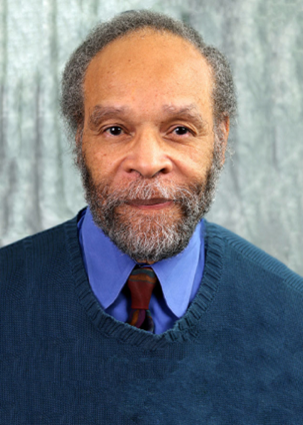
Director, Division of Community Health and Population Science, National Institute on Minority Health and Health Disparities NIMHD
Dr. Nathan Stinson Jr. serves as Director of the Division of Community Health and Population Science at NIMHD, where he oversees the extramural scientific programs on minority health and health disparities. He holds a Ph.D. in environmental biology from the University of Colorado, an M.D. from the University of Colorado Health Sciences Center, and an M.P.H. in health care administration from the Uniformed Services University of the Health Sciences.
He has received numerous honors including the Louis B. Stokes Leadership Award – National Medical Association, Silver and Gold Award for Excellence in Humanitarianism, Citizenship, and Professionalism – University of Colorado, NIH Director’s Awards, U.S. Surgeon General's Exemplary Service Medal, Outstanding Service Medal, Commendation Medal, Achievement Medal, and Crises Response Service Award – USPHS.
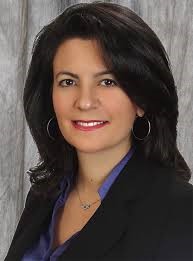 Rada K. Dagher, PhD, M.P.H.
Rada K. Dagher, PhD, M.P.H.
Health Scientist, National Institutes of Health, Clinical and Health Services Research, National Institute on Minority Health and Health Disparities
Dr. Rada Dagher is a scientific program director at NIMHD. She manages a diverse portfolio of research, capacity building, and training grants, and is a project scientist on several cooperative agreement awards. She is the program director for the Ruth L. Kirschstein National Research Service Award (NRSA) Fellowships. In addition, she represents NIMHD on multiple NIH-wide committees, including National Research Mentoring Network/Building Infrastructure Leading to Diversity (NRMN/BUILD) and Interagency Modeling and Analysis Group (IMAG).
Prior to joining NIMHD, Dr. Dagher worked in academia, where she secured grant funding and conducted research in maternal and child health, mental health, occupational health, and health disparities. She also taught Health Policy and Management and Health Services Research Methods graduate courses. Her research focused on the risk and protective factors associated with postpartum depression and the impact of this disorder on health services use. Her expertise also includes the impact of employment policies and psychosocial work organization on workers’ mental and physical health, and gender and racial/ethnic disparities in mental health and mental health services.
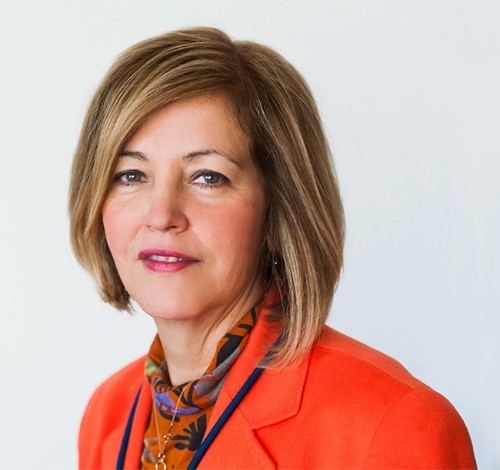 Margarita Alegría, PhD
Margarita Alegría, PhD
Chief Disparities Research Unit, Massachusetts General Hospital, Harvard Medical School
Dr. Margarita Alegría is the Chief of the Disparities Research Unit at the Massachusetts General Hospital and The Mongan Institute, the Harry G. Lehnert, Jr. and Lucille F. Cyr Lehnert Endowed MGH Research Institute Chair and a Professor in the Departments of Medicine and Psychiatry at Harvard Medical School.
She is currently the PI of four National Institutes of Health (NIH)-funded research studies: The Impact of Medicaid Plans on Access to and Quality of Substance Use Disorder (SUD) Treatment; Building Infrastructure for Community Capacity in Accelerating Integrated Care; Building Community Capacity for Disability Prevention for Minority Elders; and Latino Youth Coping with Discrimination: A Multi-Level Investigation in Micro- and Macro-Time. She has published over 290 peer-reviewed papers, and several book chapters, on topics such as the improvement of health care services delivery for diverse racial and ethnic populations, conceptual and methodological issues with multicultural populations and ways to bring the community’s perspective into the design and implementation of health services.
Anita Chandra, Dr. P.H.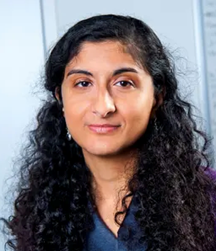
Vice President and Director, RAND Social and Economic Well-Being, Senior Policy Researcher, RAND Corporation
Anita Chandra (she/her) is Vice President and Director of RAND Social and Economic Well-Being and a senior policy researcher at the RAND Corporation. The division manages RAND’s Center to Advance Racial Equity Policy as well as other Centers on climate, housing, drug policy, policing and civil justice. She leads studies on civic well-being and community planning; disaster response and resilience; public health emergency preparedness; health and health policy; child health and development and effects of military deployment on families.
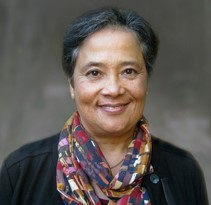 Bonnie Duran, DrPH
Bonnie Duran, DrPH
Professor, School of Social Work and Public Health, University of Washington, PI NIH Funded Research in “Indian Country”, Co-Investigator, NIMH Funded R25 HIV and Mental Health Research Training Program, Co-Investigator, NINR CBPR, Engage for Equity
Dr. Bonnie Duran is a Professor in the Schools of Social Work and Public Health at the University of Washington, in Seattle and is on the leadership team at the Indigenous Wellness Research Institute (http://health.iwri.org ). She received her Dr.PH from UC Berkeley School of Public Health in 1997. She teaches graduate courses in Community Based Participatory Research (CBPR), and Mindfulness. She has worked in public health research, evaluation and education among Tribes, Native Organizations, and other communities of color for over 35 years.
Derek M. Griffith, PhD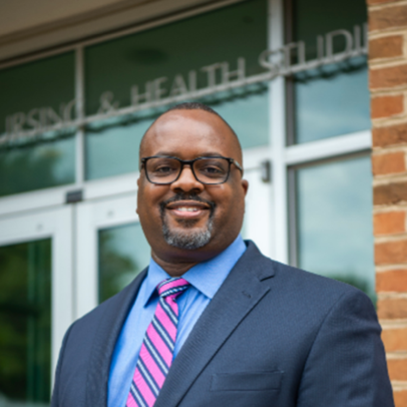
Founder and Co-Director of the Racial Justice Institute, Founder and Director of the Center for Men's Health Equity, Professor of Health Management and Policy and Oncology, Georgetown University
Dr. Derek M. Griffith is a Founding Co-Director of the Racial Justice Institute, Founder and Director of the Center for Men’s Health Equity, and Professor of Health Management & Policy and Oncology. Trained in psychology and public health, His program of research focuses on developing strategies to achieve racial, ethnic, and gender equity in health. He specializes in interventions to promote Black men's health and well-being, and interventions to mitigate the effects of structural racism on health.
He has received four noteworthy honors: (a) the Tom Bruce Award from the Community-Based Public Health Caucus of the American Public Health Association in recognition of his research on “eliminating health disparities that vary by race, ethnicity and gender”; (b) elected Fellow of the American Academy of Health Behavior for his significant contributions to the field of health behavior research; (c) named one of 1,000 Inspiring Black Scientists in America by the Cell Mentor’s Community of Scholars; and (d) received a citation from the president of the American Psychological Association, “For his extraordinary leadership in addressing the impacts of racism on the health and well-being of the nation and specifically for African American and Latino men”.
Susie Villalobos, Ed.D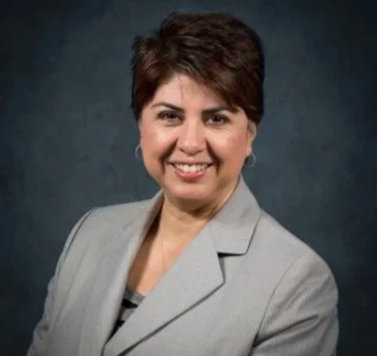
Director for the National Latino Hispanic and Prevention Technology Transfer Centers Project Manager
Dr. Susie Villalobos is the Director for the National Latino Hispanic Addiction and Prevention Technology Transfer Centers Project Director. Before joining NLBHA, Dr. Villalobos has worked with academic institutions and non-profits as a public advocate and researcher by implementing and managing clinical and socio-behavioral studies/programs. Her expertise in working with local, State and Federal agencies stems from her associations with CBO’s focused on activities committed to focusing on health disparities among Latino populations living and working on the U.S. – Mexico Border. In her capacity as Regional Evaluator for the State of Texas, in Public Health Region 10 provided leadership in data analysis, data optimization, policy analysis and forecasting.
She also represents NLBHA as cultural broker for the National COVID-19 Resources Network funded by Morehouse University in helping to bridge current information regarding the COVID-19 virus to Latinos that live along the U.S.-Mexico border. She is particularly passionate about tackling issues faced by Latino populations across, age, race, gender, and biographical location. Her federal grant management experience includes the implementation of the SAMHSA Strategic Prevention Framework to communities focused on substance use prevention efforts in the four states of California, Arizona, New Mexico, and Texas.
Cathleen E. Willging, PhD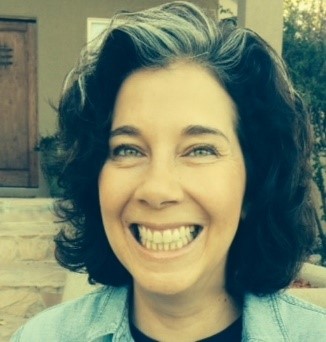
Rutgers University, Adjunct Associate Professor (appointed via Letter of Academic Title), Senior Scientist, Pacific Institute for Research and Evaluation, UNM HSC Behavioral Health Research Center
Dr. Cathleen Willging is a medical anthropologist and Senior Research Scientist at the Pacific Institute for Research and Evaluation with experience in mixed-method research, intervention development and evaluation, and implementation science (IS). Her research focuses on public mental health and substance use treatment in the United States, healthcare reform, evidence-based practice implementation and sustainment in complex systems, i.e., child welfare, and the advancement of culturally and contextually relevant programs to support marginalized groups affected by inequities.
Currently, her work entails the application of IS theory and methods to support innovative programming to reduce health and healthcare disparities for sexual and gender minority populations in diverse service delivery settings, i.e., primary care practices, hospital emergency departments, and educational institutions. I am especially interested in using participatory methods to promote community engagement in the dissemination, uptake, and sustainment of effective interventions at the individual, organization, and systems levels.
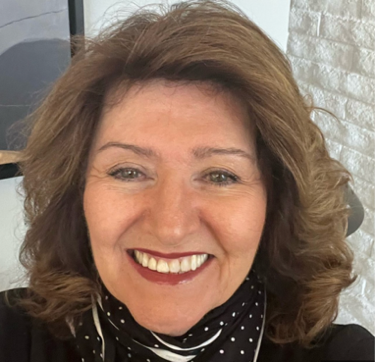 Tassy Parker, Ph.D., R.N., M.S.W.
Tassy Parker, Ph.D., R.N., M.S.W.
Director, Center for Native American Health, Associate Vice President for AI Health Research & Education, Professor, Family Community Medicine, Professor, Colleges of Nursing and Population Health, Founding Executive Director, Public Health Institute for Indigenous Knowledge & Development
Dr. Tassy Parker is a medical sociologist and tenured professor of Family and Community Medicine and professor in the Colleges of Nursing and Population Health, University of New Mexico Health Sciences Center. She is an enrolled member and elder of the Seneca Nation and belongs to the Beaver Clan. The Seneca Nation includes five Territories in Western NY and has an enrollment of 8,500 citizens. She is a Council-appointed member of the Seneca Nation Health Board. For almost two decades, Dr. Parker has been serving the Albuquerque urban Native population as an executive of the First Nations Community HealthSource Board of Directors.
Her current national service includes the NIH All of Us Research Program Advisory Panel and the International Association for Indigenous Aging executive and national committees. Dr. Parker’s leadership positions at the UNM HSC include Associate Vice Chancellor for American Indian Health Research and Education, and Director of the Center for Native American Health (CNAH). CNAH is a special project of the NM Legislature that serves all Tribes, Pueblos, Nations, and urban Native communities in NM, and consists of three priority cores: Native American Student and Tribal Health Workforce Development, Public Health Education and Capacity Expansion, and Health Equity Research.
Reverend Dr. Wanda Cody Padilla, M.Ed, DPA, Founder & President, A Better Life NOW!
Dr. Cody-Ross is an experienced founder with Experienced Founder with a demonstrated history of working in the writing and editing industry. Skilled in Non-fiction Writer, Fiction, Creative Writing, Creative Non-fiction, and Copy Editing. Strong business development professional with an Ordained Metaphysical Minister focused in Theological and Ministerial Studies from Universal Foundation for Better Living. She is also an African American female elder, mother and grandmother.
She is currently researching and writing her fourth book on understanding and offering a “reconciliation-type” solution to the “color-line” problem on our planet today. She is a certified intercultural and diversity trainer and facilitator. She is also an experienced Founder with a demonstrated history of working in the writing and editing industry. Skilled in Non-fiction Writer, Fiction, Creative Writing, Creative Non-fiction, and Copy Editing. Strong business development professional with an Ordained Metaphysical Minister focused in Theological and Ministerial Studies from Universal Foundation for Better Living.
Nadine Tafoya, MSW, LCSW (Mescalero Apache) 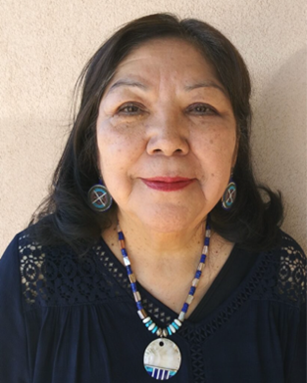
Coordinator, San Juan Collaborative for Health Equity, Trained Navajo Nation Advocate
Nadine Tafoya, MSW, LCSW (Mescalero Apache), is a wife, mother, and grandmother. She lives in a rural Pueblo village in Northern NM with her husband and family. She was born and raised in NM, under the guidance of her father and grandfather, both Servant Leaders of the Apaches.
She founded Nadine Tafoya & Associates, (NTA), in 1999, an independent consulting firm, specializing in Behavior Health prevention and treatment, program evaluation and community development initiatives, decolonization, creative conflict management, and intercultural peace building.
Traditional Healer Director, Tonantzin Traditional Healing and RAÍCES (Remembering Ancestors, Inspiring Community, Empowering Self)
Tonita Gonzales is a Curandera (Traditional Healer), Sobadora, Yerbera (Herbalist), Temazcalera (sweat lodge) Acupuncturist, traditional massage, cupping, and teacher at The University of New Mexico. Antoinette "Tonita" Gonzales has been a traditional healer, educator, and community organizer for over fifteen years.
Tonita has a degree in mathematics and graphic design and currently directs the Tonantzin Traditional Healing clinic in the North Valley of Albuquerque, New Mexico providing traditional medicine services to community members of New Mexico and Mexico. Tonita has provided traditional medicine education and consultation locally, such as at the University of New Mexico, as well as internationally. In partnership with diverse community members, she developed the organization, RAICES (Remembering Ancestors, Inspiring Community, and Empowering Self): Community Education of Traditional Medicine, which promotes cultural health education, presentations and workshops, and organizes traditional health fairs.
Health Equity Partnership, Shiprock & Gallup
Hazel is Diné/Navajo, of the Zuni Edgewater People; born for Black Streak through Wood People; maternal Chei/grandfather is Big Water; Nali/Paternal grandfather is of the Salt People. She is a proud mother of four and a grandmother of five grandsons who honors Diné values, principles, and wisdom, learned from her parents and grandparents, by applying cultural protocols and bringing a Diné/Indigenous lens to her work. She believes in the importance of revitalizing Dine’ knowledge and language to effect positive change centered on unity and healing.
She is also a trained Navajo Nation advocate and has been committed to working with communities and families toward family wellness for decades in the areas of housing, food sovereignty, racial justice, and health equity. She is the coordinator for the San Juan Collaborative for Health Equity, an initiative of the New Mexico Health Equity Partnership, the Santa Fe Community Foundation, and Indian Country Grassroots. In her work, she also focuses on capacity building within communities facing environmental health impacts, addresses issues such as homelessness, conducts racial justice education and training, hosts Indigenous youth planning committees, and designs summits to identify solutions for future generations.
Lupe Salazar, BS, Integrative Health Studies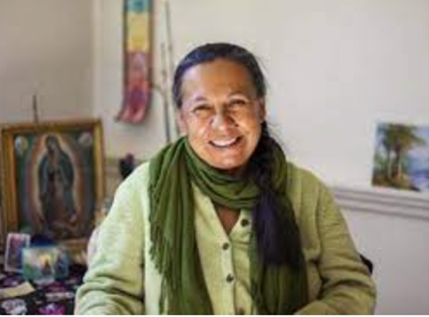
President and Founder, Barrios Unidos, Chimayo, New Mexico
Barrios Unidos is a 501(c)(3) organization in Northern New Mexico providing support to families fighting the scourges of addiction. We are in the capitalization phase and implementing programs that keep families together. Our motto is "Querencia" which refers to both our focus on caring for the family as well as the battle before us. Her roles include wearing many different hats from gathering information, bringing people together, public relations, getting exposure, recruiting a hub of volunteers, conducting Board Meetings and gathering data to complete reports.
Lupe founded Barrios Unidos; a community center dedicated to addressing the many ways opioid use has impacted families like hers. It does this by organizing support groups for other grandparents who are raising young grandchildren, offering material support like groceries, diapers, wound care supplies, clothing, and meals to families and homeless individuals living on the street, and offering alternative therapeutic services like acupressure therapy, bodywork, rock polishing, and sweat lodge ceremonies.
Lisa M. Cacari Stone, Ph.D., MA, MS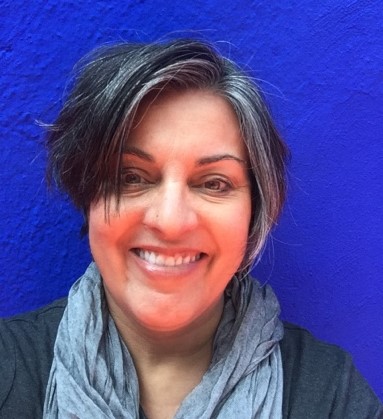
Professor, UNM College of Population Health, Health and Social Policy: Executive Director/PI, Founder of Transdisciplinary Research, Equity & Engagement Center (NIMHD U54)
Dr. Cacari Stone has dedicated over 30 years of public health leadership, practice and policy work. She is the founding Principal Investigator and Director of the Transdisciplinary TREE Center which is one of twelve research centers of excellence funded by the National Institute of Minority Health and Health Disparities. She has extensive experience working as part of a multidisciplinary team and working effectively with persons from diverse cultural, social and ethnic backgrounds in the roles of Assistant Director with the Robert Wood Johnson Center for Health Policy and Director of the Community Engagement Core.
Her investigations encompass the macro-level determinants of health, community level and the individual level. Her studies along the U.S.-Mexico border have involved multi-disciplinary collaborations with community and academic partners to develop and evaluate evidence-based interventions and policies that promote health equity. Her expertise is in national, state and local policy developing and is trusted for her work in translating and disseminating data for policy making with governments, community-based organizations and foundations. She is a thought- leader in health equity and has published numerous peer-reviewed policy briefs, public reports and papers.
Theresa Cruz, Ph. D., M.P.H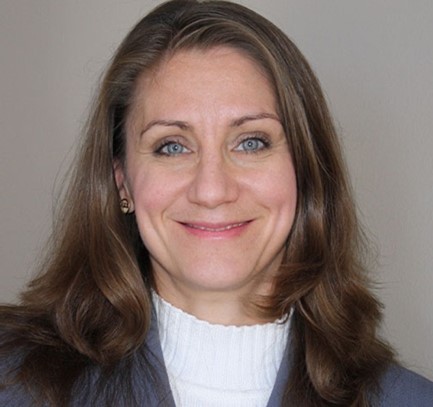
Research Associate Professor and Deputy Director, UNM Prevention Research Center
Dr. Theresa H Cruz is an epidemiologist and Research Associate Professor in the Department of Pediatrics, Division of Prevention and Population Sciences at the University of New Mexico, School of Medicine. She also serves as the Deputy Director of the UNM Prevention Research Center. She has worked in the field of injury prevention since 1996. She has also focused on cross-cutting issues including surveillance, quality of e-coding, substance misuse, and research in under-represented populations, particularly Hispanics and American Indians and those living in rural areas.
She is currently involved in community-engaged primary prevention research and evaluation that aims to reduce childhood obesity, increase physical activity, increase referrals for early childhood home visiting, reduce opioid overdose, and reduce sexual violence. Dr. Cruz serves on the Board of the Society for Advancement of Violence and Injury Research (SAVIR) and on the Advocacy and Policy Committee of SAVIR.
Steven P. Verney, Ph.D.
Associate Professor, Department of Psychology, UNM, Co-Investigator, UNM TREE Center for Advancing Behavioral Health
Dr. Steven P. Verney is an Alaska Native (Tsimshian) Associate Professor in the department of Psychology at UNM. He is currently a co-Investigator with the TREE Center for Advancing Behavioral Health, a Senior Fellow with the Robert Wood Johnson Foundation Center for Health Policy at UNM and a past fellow in the American Indian Alaska Native Program at the University of Colorado. He strives to increase diversity awareness and training and has developed the department’s Diversity Organization (DO!), a student organization to increase diversity awareness and training within the department, and the Cultural Counseling Center, which provides clinical supervision and consulting services to students working with diverse populations.
His overarching philosophy is that culture counts. Culture is infused in all our beings influencing how we think, feel, and behave. His research has evolved into mental health disparities focus, especially in the American Indian/Alaska Native populations. He is interested in the role of culture in cognition and assessment including education (i.e., quality of education), language (bilingualism), and acculturation/cultural adaptation processes.
Aim 1. Develop center procedures ensuring the implementation of all aims, and maintaining compliance with policies and procedures.
Aim 2. Launch and support the Community, Scientific, and Policy Advisory Committee (CSPAC); coordinate bi-directional communications; foster dissemination of cultural knowledge and research evidence.
Aim 3. Provide administrative support, vision, and oversight of the research and pilot projects.
Aim 4. Coordinate career enhancement activities to promote the recruitment, development, and retention of diverse investigators to create a sustainable pipeline of multi-level transdisciplinary behavioral health.
Aim 5. Evaluate the Center outcomes with annual member surveys, retreats, and documentation of key priorities; develop a standard set of common data elements and measures at multiple domains.
 Lisa Cacari Stone, PhD, (purepecha/mestiza), Professor, College of Population Health
Lisa Cacari Stone, PhD, (purepecha/mestiza), Professor, College of Population Health
TREE Executive Director/PI
Email: LCacari-Stone@salud.unm.edu
Dr. Cacari Stone has dedicated over 30 years of population health science aimed at advancing health equity for diverse racial, under-resourced, rural and Latinx and immigrant populations.
She brings direct experience in health policy, child and social welfare as a former licensed behavioral health provider, director for a home visiting child welfare program, director of senior services, executive director of a rural federally qualified mental health clinic, state health officer and federal women’s health liaison with the U.S. Department of Health and Human Services and policy fellow with the Health Education, Labor and Pensions Committee and Senator "Ted" Kennedy.
Her scholarly portfolio is comprised of over $26 million in grants from private and public funders and encompasses the macro-level determinants of health (e.g. health reform, immigration policies), to the community level (e.g.Tool for Health and Resilience in Vulnerable Environments in frontier border communities), to the interpersonal level (e.g. role of promotores de salud in bridging patient-provider communications).
She has written multiple articles (i.e. Health Affairs, American Journal of Public Health, Academic Medicine) and policy reports and delivered over 100 research presentations to academic, community and policy audiences at the national, binational and state/local levels. Dr. Cacari Stone came to UNM after completing prestigious fellowships with the top thought leaders in social determinants of health at Harvard and training at the top-rated health/social policy school in the nation- Heller, Brandeis University.

Theresa H Cruz, PhD
Email: Thcruz@salud.unm.edu
Dr. Cruz is Co-Director of the TREE Center’s Investigator Development Core (IDC), developing and implementing a successful pilot research project program. She is a Research Associate Professor in the UNM Department of Pediatrics, and an Epidemiologist and Deputy Director of the CDC-funded University of New Mexico Prevention Research Center (PRC).
She is involved with the UNM PRC Education and is Training Core Lead with experience developing and implementing training for faculty, staff, students and community partners. Dr. Cruz’s research interest and expertise are: Community-engaged research, translation and dissemination research, primary prevention, and injury and violence prevention, particularly in the areas of adverse childhood experiences, prescription drug overdose, sexual violence prevention and suicide prevention.

Steven Verney, PhD, Associate Professor, Department of Psychology
Email: sverney@unm.edu
Dr. Verney is Alaska Native (Tsimshian) and an Associate Professor in the Department of Psychology. He is a Co-Principal Investigator (Co-PI) on UNM TREE Center for Advancing Behavioral Health, an NIH Center of Excellence in Health Disparities. He has been involved in several studies investigating cognitive aging and
decline in older American Indians, and is the PI on two Native health disparities projects.
He is also involved in other funded projects investigating health inequities cerebrovascular disease, Alzheimer’s disease and related disorders, and related risk factors in older American Indians. Dr. Verney has a broad background in psychology, with specific training and expertise in neuropsychological assessment, cultural psychology and mental health and has mentored a variety of underrepresented students including undergraduate, graduate, and post-doctoral students.
 Gabriel R. Sanchez, PhD, MPI Years 1-4, Professor, Department of Political Science
Gabriel R. Sanchez, PhD, MPI Years 1-4, Professor, Department of Political Science
Email: rypsanchez@salud.unm.edu
Dr. Sanchez is the Executive Director of the UNM Center for Social Policy, co-Founder, the UNM Native American Budget and Policy Institute, and Director of Graduate Studies, the UNM Department of Political Science.
Dr. Sanchez is an expert on politics in the Southwest having directed many research projects and polls for Latino Decisions in New Mexico, Colorado and Arizona and he has been invited to give talks and presentations at the Congressional Hispanic Caucus Institute, LULAC, AFL-CIO, the Democratic Congressional Campaign Committee (DCCC), and often serves as an expert policy advisor to the New Mexico State Legislature.
His research explores the relationship between racial/ethnic identity and political engagement, Latino health policy, and minority legislative behavior. Sanchez has published more than fifty scholarly research articles, chapters and books that examine minority public opinion, electoral behavior and racial and ethnic politics more generally in the United States.
Dr. Sanchez is the author of the recent book Latinos and the 2016 Election: Latino Resistance and the Election of Donald Trump, and is currently working on the second edition of this book that will focus on the 2016 election. Dr. Sanchez is also coauthor of Latino Politics of America: Community, Culture and Interests, a textbook on Latino politics that will be ready for order in Fall 2020.
 Maria Yellow Horse Brave Heart, PhD, MPI Years 1-4
Maria Yellow Horse Brave Heart, PhD, MPI Years 1-4
Email: MBraveHeart@salud.unm.edu
Dr. Brave Heart (Hunkpapa and Oglala Lakota), is an Associate Professor/ Clinician Educator, at the UNM Department of Psychiatry and Behavioral Sciences, and is a Co-PI for the UNM TREE Center for Advancing Behavioral Health, and NIH Center of Excellence in Health Disparities.
Dr. Brave Heart was the Principal Investigator (PI) of the NIMH R34 Randomized Pilot Clinical Trial: Iwankapiya (Healing): Historical Trauma Intervention and Group Interpersonal Psychotherapy. This study compared two outpatient group psychotherapy models for depression and PTSD symptoms in two tribal sites: a Northern Plains reservation and a Southwest urban American Indian clinic. Dr. Brave Heart was also a PI on the NIMHD Mescalero (Apache) Tribal Preventive and Early Mental Health Intervention (with high school reservation youth, focused on suicidal risk).
Dr. Brave Heart developed the field of historical trauma interventions for American Indians and Alaska Natives and founded the Takini (Survivor) Network/Takini Institute in 1992. Her prior academic appointments include – Associate Professor, University of Denver Graduate School of Social Work; Associate Professor, Columbia University School of Social Work, and affiliate with New York State Psychiatric Institute/Columbia Medical School.
Dr. Brave Heart is the author of multiple papers dedicated to understanding historical trauma, unresolved grief and healing for diverse American Indian and Alaska Native communities, and implications for other traumatized, oppressed populations, particularly those across the Americas.
 Blake Boursaw, Sr. Research Scientists, UNM TREE Center
Blake Boursaw, Sr. Research Scientists, UNM TREE Center
Email: bboursaw@salud.unm.edu
Blake's research focuses on using his deep, conceptually rigorous training in pure mathematics as a platform for employing a range of techniques, including innovating modeling strategies, to respond to analytic challenges that arise in equity-oriented research in novel ways.
The TREE Center has been an important academic home for advancing this research trajectory, building skills and making new connections. When not conducting research, Blake enjoys the splendor and beauties of New Mexico."

Carlos Antonio Linares Koloffon
Email: CLinaresKoloffon@salud.unm.edu
Dr. Carlos Linares Koloffon, MD, MPH. His research interests involve the study of intersectionality between ethnicity and socioeconomic status in population health outcomes, clinical and social outcomes, border health, and policy dynamics, with a focus on mixed method methodology, evaluation of organizations, project management and geographic information systems. He has experience in cardiovascular and kidney disease research and community engagement. He obtained a master’s in public health degree at UNM, in addition he completed a one-year fellowship in evaluation of organizations in the department of economics. Currently, he works as a Research Scientist 2 at the UNM TREE Center and the WEAVE NM study.
 Daisy V. Rosero, MPH
Daisy V. Rosero, MPH
Email: drosero@salud.unm.edu
Daisy is a bilingual, Latine, Public Health professional with a broad knowledge base and background in program implementation, evaluation and research. Over the past 15 years, she has worked with minority populations on topics related to youth and adult alcohol prevention, advocacy, and agricultural occupational health. She is dedicated to facilitating cross-discipline collaborative opportunities to tackle issues of health and sociocultural inequities. Daisy is a Research Scientist at the TREE Center and collaborates with TREE Center faculty to assist with data collection, analysis, evaluation and reporting.
Email: thachavez@salud.unm.edu
Thomas A. Chávez, Ph.D. is a research faculty member at the University of New Mexico Health Sciences Center (UNM HSC), Transdisciplinary Research, Equity, and Engagement in Behavioral Health Center (TREE) and the School of Medicine (SOM), Department of Psychiatry and Behavioral Sciences, Division of Community Behavioral Health.
His scholarly work centers on community-engaged Latinx behavioral health research on immigrant access to educational and medical care, immigrant trauma, substance use, and culturally centered intervention. In addition, he is a practitioner and educator of traditional medicine (Curanderismo) of the U.S. Southwest and co-directs the RAICES Community Education on Traditional Medicine.
Email: eaarevalo@salud.unm.edu
Edgar Arevalo, Program Coordinator, BSPH for the TREE center and assists staff with ongoing projects. In addition, Edgar is involved in several different organizations, such as the New Mexico Public Health Association (NMPHA) and the Association of State Public Health Nutritionists (ASPHN). The TREE Center, similar to his other internships, gives him the opportunity to explore topics within Public Health and highlight different disparities in need of solutions.
Email: alespinozaangeles@salud.unm.edu
Ámbar Espinoza-Ángeles (she/her/ella) is an undergraduate student at the University of New Mexico College of Nursing. She works with the TREE Center as a Research Assistant and is committed to her deeply rooted belief in community. Her interests are in health equity and learning more about how her role as a future healthcare provider can further enhance and uplift communities that experience health disparities. She is interested in furthering her education to obtain her DNP as a Family Nurse Practitioner and Master in Public Health with the hopes of opening her own clinical practice to cater to undocumented and low-income populations while integrating traditional medicine/healing practices and Western medicine.
The UNM HSC TREE Center has sponsored over 50 trainings, discussions and convenings on multi-level research methods and intersectionality, historical trauma, community based participatory research, and social determinants of health. Including an 8-week training on the “Sociopolitical Contexts of Cognitive Decline among American Indian/Native American & Latino Older Populations in Rural/Frontier Contexts.”
The Steering Committee is a leadership subcommittee comprised of select members from TREE Center’s Community Scientific Advisory Council (CSPAC) and NIMHD officers. The steering committee has Joint Responsibility for the direction of the TREE Center and includes the: 1) four Center co-PI(s); 2) four members from the CSPAC; 3) the NIMHD Program Official and two NIMHD Project Scientists; and 4) four academic scientists. Each committee member will have one vote except for the NIH staff members, who will share one vote. The Steering Committee will convene by telephone as needed and will meet in person at least once a year.
Nathan Stinson Jr., Ph.D., M.D.
Director, Division of Community Health and Population Science, National Institute on Minority Health and Health Disparities NIMHD
Dr. Nathan Stinson Jr. serves as Director of the Division of Community Health and Population Science at NIMHD, where he oversees the extramural scientific programs on minority health and health disparities. He holds a Ph.D. in environmental biology from the University of Colorado, an M.D. from the University of Colorado Health Sciences Center, and an M.P.H. in health care administration from the Uniformed Services University of the Health Sciences.
He has received numerous honors including the Louis B. Stokes Leadership Award – National Medical Association, Silver and Gold Award for Excellence in Humanitarianism, Citizenship, and Professionalism – University of Colorado, NIH Director’s Awards, U.S. Surgeon General's Exemplary Service Medal, Outstanding Service Medal, Commendation Medal, Achievement Medal, and Crises Response Service Award – USPHS.
 Rada K. Dagher, PhD, M.P.H.
Rada K. Dagher, PhD, M.P.H.
Health Scientist, National Institutes of Health, Clinical and Health Services Research, National Institute on Minority Health and Health Disparities
Dr. Rada Dagher is a scientific program director at NIMHD. She manages a diverse portfolio of research, capacity building, and training grants, and is a project scientist on several cooperative agreement awards. She is the program director for the Ruth L. Kirschstein National Research Service Award (NRSA) Fellowships. In addition, she represents NIMHD on multiple NIH-wide committees, including National Research Mentoring Network/Building Infrastructure Leading to Diversity (NRMN/BUILD) and Interagency Modeling and Analysis Group (IMAG).
Prior to joining NIMHD, Dr. Dagher worked in academia, where she secured grant funding and conducted research in maternal and child health, mental health, occupational health, and health disparities. She also taught Health Policy and Management and Health Services Research Methods graduate courses. Her research focused on the risk and protective factors associated with postpartum depression and the impact of this disorder on health services use. Her expertise also includes the impact of employment policies and psychosocial work organization on workers’ mental and physical health, and gender and racial/ethnic disparities in mental health and mental health services.
 Margarita Alegría, PhD
Margarita Alegría, PhD
Chief Disparities Research Unit, Massachusetts General Hospital, Harvard Medical School
Dr. Margarita Alegría is the Chief of the Disparities Research Unit at the Massachusetts General Hospital and The Mongan Institute, the Harry G. Lehnert, Jr. and Lucille F. Cyr Lehnert Endowed MGH Research Institute Chair and a Professor in the Departments of Medicine and Psychiatry at Harvard Medical School.
She is currently the PI of four National Institutes of Health (NIH)-funded research studies: The Impact of Medicaid Plans on Access to and Quality of Substance Use Disorder (SUD) Treatment; Building Infrastructure for Community Capacity in Accelerating Integrated Care; Building Community Capacity for Disability Prevention for Minority Elders; and Latino Youth Coping with Discrimination: A Multi-Level Investigation in Micro- and Macro-Time. She has published over 290 peer-reviewed papers, and several book chapters, on topics such as the improvement of health care services delivery for diverse racial and ethnic populations, conceptual and methodological issues with multicultural populations and ways to bring the community’s perspective into the design and implementation of health services.
Anita Chandra, Dr. P.H.
Vice President and Director, RAND Social and Economic Well-Being, Senior Policy Researcher, RAND Corporation
Anita Chandra (she/her) is Vice President and Director of RAND Social and Economic Well-Being and a senior policy researcher at the RAND Corporation. The division manages RAND’s Center to Advance Racial Equity Policy as well as other Centers on climate, housing, drug policy, policing and civil justice. She leads studies on civic well-being and community planning; disaster response and resilience; public health emergency preparedness; health and health policy; child health and development and effects of military deployment on families.
 Bonnie Duran, DrPH
Bonnie Duran, DrPH
Professor, School of Social Work and Public Health, University of Washington, PI NIH Funded Research in “Indian Country”, Co-Investigator, NIMH Funded R25 HIV and Mental Health Research Training Program, Co-Investigator, NINR CBPR, Engage for Equity
Dr. Bonnie Duran is a Professor in the Schools of Social Work and Public Health at the University of Washington, in Seattle and is on the leadership team at the Indigenous Wellness Research Institute (http://health.iwri.org ). She received her Dr.PH from UC Berkeley School of Public Health in 1997. She teaches graduate courses in Community Based Participatory Research (CBPR), and Mindfulness. She has worked in public health research, evaluation and education among Tribes, Native Organizations, and other communities of color for over 35 years.
Derek M. Griffith, PhD
Founder and Co-Director of the Racial Justice Institute, Founder and Director of the Center for Men's Health Equity, Professor of Health Management and Policy and Oncology, Georgetown University
Dr. Derek M. Griffith is a Founding Co-Director of the Racial Justice Institute, Founder and Director of the Center for Men’s Health Equity, and Professor of Health Management & Policy and Oncology. Trained in psychology and public health, His program of research focuses on developing strategies to achieve racial, ethnic, and gender equity in health. He specializes in interventions to promote Black men's health and well-being, and interventions to mitigate the effects of structural racism on health.
He has received four noteworthy honors: (a) the Tom Bruce Award from the Community-Based Public Health Caucus of the American Public Health Association in recognition of his research on “eliminating health disparities that vary by race, ethnicity and gender”; (b) elected Fellow of the American Academy of Health Behavior for his significant contributions to the field of health behavior research; (c) named one of 1,000 Inspiring Black Scientists in America by the Cell Mentor’s Community of Scholars; and (d) received a citation from the president of the American Psychological Association, “For his extraordinary leadership in addressing the impacts of racism on the health and well-being of the nation and specifically for African American and Latino men”.
Susie Villalobos, Ed.D
Director for the National Latino Hispanic and Prevention Technology Transfer Centers Project Manager
Dr. Susie Villalobos is the Director for the National Latino Hispanic Addiction and Prevention Technology Transfer Centers Project Director. Before joining NLBHA, Dr. Villalobos has worked with academic institutions and non-profits as a public advocate and researcher by implementing and managing clinical and socio-behavioral studies/programs. Her expertise in working with local, State and Federal agencies stems from her associations with CBO’s focused on activities committed to focusing on health disparities among Latino populations living and working on the U.S. – Mexico Border. In her capacity as Regional Evaluator for the State of Texas, in Public Health Region 10 provided leadership in data analysis, data optimization, policy analysis and forecasting.
She also represents NLBHA as cultural broker for the National COVID-19 Resources Network funded by Morehouse University in helping to bridge current information regarding the COVID-19 virus to Latinos that live along the U.S.-Mexico border. She is particularly passionate about tackling issues faced by Latino populations across, age, race, gender, and biographical location. Her federal grant management experience includes the implementation of the SAMHSA Strategic Prevention Framework to communities focused on substance use prevention efforts in the four states of California, Arizona, New Mexico, and Texas.
Cathleen E. Willging, PhD
Rutgers University, Adjunct Associate Professor (appointed via Letter of Academic Title), Senior Scientist, Pacific Institute for Research and Evaluation, UNM HSC Behavioral Health Research Center
Dr. Cathleen Willging is a medical anthropologist and Senior Research Scientist at the Pacific Institute for Research and Evaluation with experience in mixed-method research, intervention development and evaluation, and implementation science (IS). Her research focuses on public mental health and substance use treatment in the United States, healthcare reform, evidence-based practice implementation and sustainment in complex systems, i.e., child welfare, and the advancement of culturally and contextually relevant programs to support marginalized groups affected by inequities.
Currently, her work entails the application of IS theory and methods to support innovative programming to reduce health and healthcare disparities for sexual and gender minority populations in diverse service delivery settings, i.e., primary care practices, hospital emergency departments, and educational institutions. I am especially interested in using participatory methods to promote community engagement in the dissemination, uptake, and sustainment of effective interventions at the individual, organization, and systems levels.
 Tassy Parker, Ph.D., R.N., M.S.W.
Tassy Parker, Ph.D., R.N., M.S.W.
Director, Center for Native American Health, Associate Vice President for AI Health Research & Education, Professor, Family Community Medicine, Professor, Colleges of Nursing and Population Health, Founding Executive Director, Public Health Institute for Indigenous Knowledge & Development
Dr. Tassy Parker is a medical sociologist and tenured professor of Family and Community Medicine and professor in the Colleges of Nursing and Population Health, University of New Mexico Health Sciences Center. She is an enrolled member and elder of the Seneca Nation and belongs to the Beaver Clan. The Seneca Nation includes five Territories in Western NY and has an enrollment of 8,500 citizens. She is a Council-appointed member of the Seneca Nation Health Board. For almost two decades, Dr. Parker has been serving the Albuquerque urban Native population as an executive of the First Nations Community HealthSource Board of Directors.
Her current national service includes the NIH All of Us Research Program Advisory Panel and the International Association for Indigenous Aging executive and national committees. Dr. Parker’s leadership positions at the UNM HSC include Associate Vice Chancellor for American Indian Health Research and Education, and Director of the Center for Native American Health (CNAH). CNAH is a special project of the NM Legislature that serves all Tribes, Pueblos, Nations, and urban Native communities in NM, and consists of three priority cores: Native American Student and Tribal Health Workforce Development, Public Health Education and Capacity Expansion, and Health Equity Research.
Reverend Dr. Wanda Cody Padilla, M.Ed, DPA, Founder & President, A Better Life NOW!
Dr. Cody-Ross is an experienced founder with Experienced Founder with a demonstrated history of working in the writing and editing industry. Skilled in Non-fiction Writer, Fiction, Creative Writing, Creative Non-fiction, and Copy Editing. Strong business development professional with an Ordained Metaphysical Minister focused in Theological and Ministerial Studies from Universal Foundation for Better Living. She is also an African American female elder, mother and grandmother.
She is currently researching and writing her fourth book on understanding and offering a “reconciliation-type” solution to the “color-line” problem on our planet today. She is a certified intercultural and diversity trainer and facilitator. She is also an experienced Founder with a demonstrated history of working in the writing and editing industry. Skilled in Non-fiction Writer, Fiction, Creative Writing, Creative Non-fiction, and Copy Editing. Strong business development professional with an Ordained Metaphysical Minister focused in Theological and Ministerial Studies from Universal Foundation for Better Living.
Nadine Tafoya, MSW, LCSW (Mescalero Apache) 
Coordinator, San Juan Collaborative for Health Equity, Trained Navajo Nation Advocate
Nadine Tafoya, MSW, LCSW (Mescalero Apache), is a wife, mother, and grandmother. She lives in a rural Pueblo village in Northern NM with her husband and family. She was born and raised in NM, under the guidance of her father and grandfather, both Servant Leaders of the Apaches.
She founded Nadine Tafoya & Associates, (NTA), in 1999, an independent consulting firm, specializing in Behavior Health prevention and treatment, program evaluation and community development initiatives, decolonization, creative conflict management, and intercultural peace building.
Traditional Healer Director, Tonantzin Traditional Healing and RAÍCES (Remembering Ancestors, Inspiring Community, Empowering Self)
Tonita Gonzales is a Curandera (Traditional Healer), Sobadora, Yerbera (Herbalist), Temazcalera (sweat lodge) Acupuncturist, traditional massage, cupping, and teacher at The University of New Mexico. Antoinette "Tonita" Gonzales has been a traditional healer, educator, and community organizer for over fifteen years.
Tonita has a degree in mathematics and graphic design and currently directs the Tonantzin Traditional Healing clinic in the North Valley of Albuquerque, New Mexico providing traditional medicine services to community members of New Mexico and Mexico. Tonita has provided traditional medicine education and consultation locally, such as at the University of New Mexico, as well as internationally. In partnership with diverse community members, she developed the organization, RAICES (Remembering Ancestors, Inspiring Community, and Empowering Self): Community Education of Traditional Medicine, which promotes cultural health education, presentations and workshops, and organizes traditional health fairs.
Health Equity Partnership, Shiprock & Gallup
Hazel is Diné/Navajo, of the Zuni Edgewater People; born for Black Streak through Wood People; maternal Chei/grandfather is Big Water; Nali/Paternal grandfather is of the Salt People. She is a proud mother of four and a grandmother of five grandsons who honors Diné values, principles, and wisdom, learned from her parents and grandparents, by applying cultural protocols and bringing a Diné/Indigenous lens to her work. She believes in the importance of revitalizing Dine’ knowledge and language to effect positive change centered on unity and healing.
She is also a trained Navajo Nation advocate and has been committed to working with communities and families toward family wellness for decades in the areas of housing, food sovereignty, racial justice, and health equity. She is the coordinator for the San Juan Collaborative for Health Equity, an initiative of the New Mexico Health Equity Partnership, the Santa Fe Community Foundation, and Indian Country Grassroots. In her work, she also focuses on capacity building within communities facing environmental health impacts, addresses issues such as homelessness, conducts racial justice education and training, hosts Indigenous youth planning committees, and designs summits to identify solutions for future generations.
Lupe Salazar, BS, Integrative Health Studies
President and Founder, Barrios Unidos, Chimayo, New Mexico
Barrios Unidos is a 501(c)(3) organization in Northern New Mexico providing support to families fighting the scourges of addiction. We are in the capitalization phase and implementing programs that keep families together. Our motto is "Querencia" which refers to both our focus on caring for the family as well as the battle before us. Her roles include wearing many different hats from gathering information, bringing people together, public relations, getting exposure, recruiting a hub of volunteers, conducting Board Meetings and gathering data to complete reports.
Lupe founded Barrios Unidos; a community center dedicated to addressing the many ways opioid use has impacted families like hers. It does this by organizing support groups for other grandparents who are raising young grandchildren, offering material support like groceries, diapers, wound care supplies, clothing, and meals to families and homeless individuals living on the street, and offering alternative therapeutic services like acupressure therapy, bodywork, rock polishing, and sweat lodge ceremonies.
Lisa M. Cacari Stone, Ph.D., MA, MS
Professor, UNM College of Population Health, Health and Social Policy: Executive Director/PI, Founder of Transdisciplinary Research, Equity & Engagement Center (NIMHD U54)
Dr. Cacari Stone has dedicated over 30 years of public health leadership, practice and policy work. She is the founding Principal Investigator and Director of the Transdisciplinary TREE Center which is one of twelve research centers of excellence funded by the National Institute of Minority Health and Health Disparities. She has extensive experience working as part of a multidisciplinary team and working effectively with persons from diverse cultural, social and ethnic backgrounds in the roles of Assistant Director with the Robert Wood Johnson Center for Health Policy and Director of the Community Engagement Core.
Her investigations encompass the macro-level determinants of health, community level and the individual level. Her studies along the U.S.-Mexico border have involved multi-disciplinary collaborations with community and academic partners to develop and evaluate evidence-based interventions and policies that promote health equity. Her expertise is in national, state and local policy developing and is trusted for her work in translating and disseminating data for policy making with governments, community-based organizations and foundations. She is a thought- leader in health equity and has published numerous peer-reviewed policy briefs, public reports and papers.
Theresa Cruz, Ph. D., M.P.H
Research Associate Professor and Deputy Director, UNM Prevention Research Center
Dr. Theresa H Cruz is an epidemiologist and Research Associate Professor in the Department of Pediatrics, Division of Prevention and Population Sciences at the University of New Mexico, School of Medicine. She also serves as the Deputy Director of the UNM Prevention Research Center. She has worked in the field of injury prevention since 1996. She has also focused on cross-cutting issues including surveillance, quality of e-coding, substance misuse, and research in under-represented populations, particularly Hispanics and American Indians and those living in rural areas.
She is currently involved in community-engaged primary prevention research and evaluation that aims to reduce childhood obesity, increase physical activity, increase referrals for early childhood home visiting, reduce opioid overdose, and reduce sexual violence. Dr. Cruz serves on the Board of the Society for Advancement of Violence and Injury Research (SAVIR) and on the Advocacy and Policy Committee of SAVIR.
Steven P. Verney, Ph.D.
Associate Professor, Department of Psychology, UNM, Co-Investigator, UNM TREE Center for Advancing Behavioral Health
Dr. Steven P. Verney is an Alaska Native (Tsimshian) Associate Professor in the department of Psychology at UNM. He is currently a co-Investigator with the TREE Center for Advancing Behavioral Health, a Senior Fellow with the Robert Wood Johnson Foundation Center for Health Policy at UNM and a past fellow in the American Indian Alaska Native Program at the University of Colorado. He strives to increase diversity awareness and training and has developed the department’s Diversity Organization (DO!), a student organization to increase diversity awareness and training within the department, and the Cultural Counseling Center, which provides clinical supervision and consulting services to students working with diverse populations.
His overarching philosophy is that culture counts. Culture is infused in all our beings influencing how we think, feel, and behave. His research has evolved into mental health disparities focus, especially in the American Indian/Alaska Native populations. He is interested in the role of culture in cognition and assessment including education (i.e., quality of education), language (bilingualism), and acculturation/cultural adaptation processes.
The Investigator Development Core works to improve the health and well-being for New Mexicans by providing training and mentoring for the future of behavioral health disparities researchers. This includes:
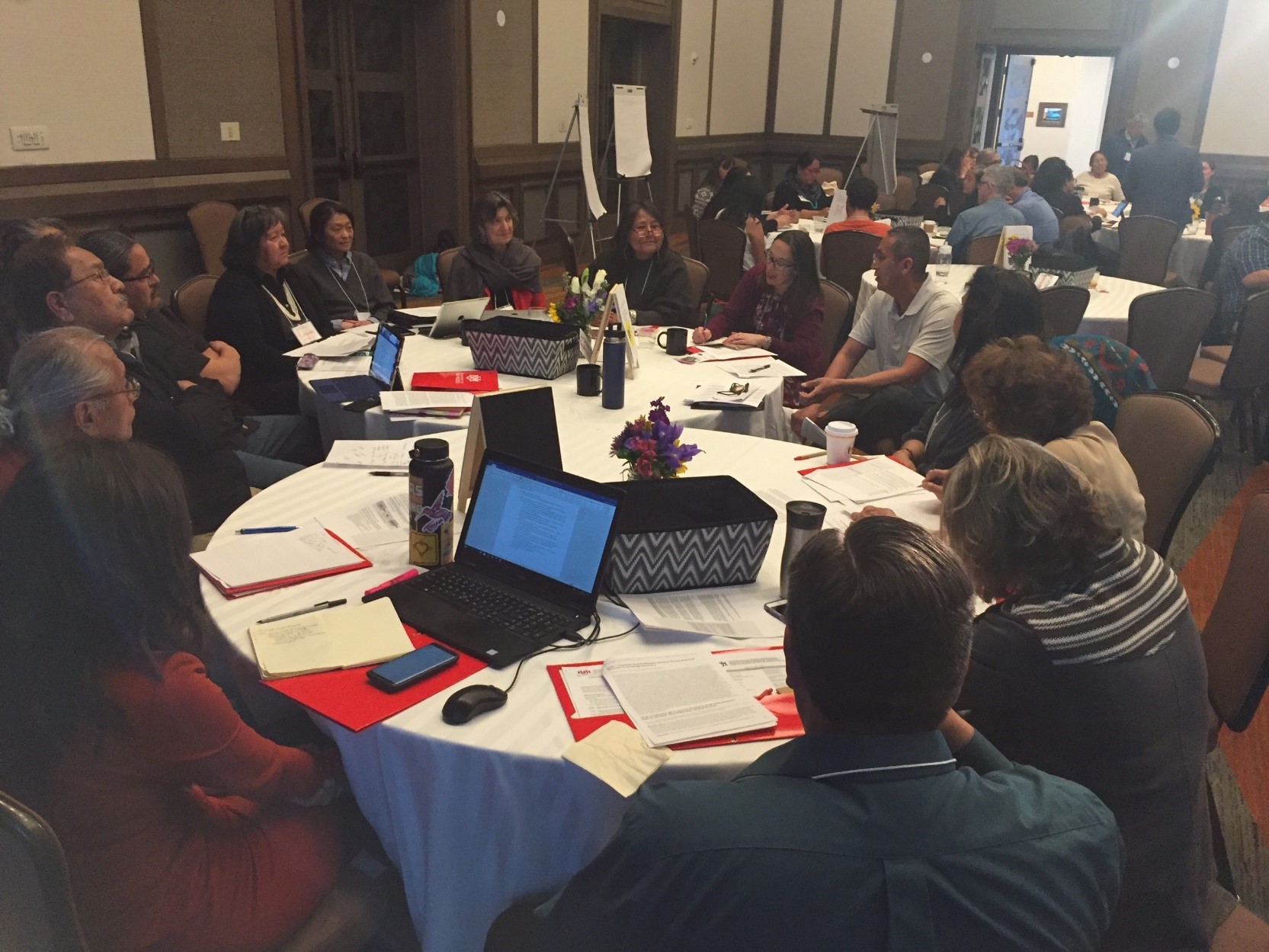
Aim 1. Develop and implement a pilot project (PP) program (3 new projects per year at $50K for postdoctoral scholars and junior faculty); related to the social determinants of BH, historical trauma, ACES, and the intersectional effects of poverty and discrimination.
Aim 2. Increase the number of underrepresented minority (URM) and non-URM post-doctoral students, junior faculty, and early stage investigators (BH intervention research).
Aim 3. Increase researcher capacity to conduct behavioral health disparities research by developing and implementing a mentorship model.
Aim 4. Develop novel approaches and methods to support junior researchers and new investigators.
 Matthew Borrego, PhD, MS, RPh
Matthew Borrego, PhD, MS, RPh
Email: Mboreggo@salud.unm.edu
Dr. Borrego is Co-Director of the TREE Center’s Investigator Development Core (IDC), developing and implementing a successful faculty pilot research project program. He is a Professor and Director of Graduate Studies, UNM College of Pharmacy.
He is a Pharmacist and PhD trained in Pharmacoeconomics /health outcomes research. His research interest/expertise are: Pharmacoeconomics/ health outcomes, health policy, health disparities, health literacy, survey research, interprofessional education and pharmacy education /practice issues.
 Theresa H Cruz, PhD
Theresa H Cruz, PhD
Email: Thcruz@salud.unm.edu
Dr. Cruz is the Co-Director of the TREE Center’s Investigator Development Core (IDC), developing and implementing a successful pilot research project program. She is a Research Associate Professor in the UNM Department of Pediatrics, and an Epidemiologist and Deputy Director of the CDC-funded University of New Mexico Prevention Research Center (PRC).
She is involved with the UNM PRC Education and is Training Core Lead with experience developing and implementing training for faculty, staff, students and community partners. Dr. Cruz’s research interests and expertise are: Community-engaged research, translation and dissemination research, primary prevention, and injury and violence prevention, particularly in the areas of adverse childhood experiences, prescription drug overdose, sexual violence prevention and suicide prevention.
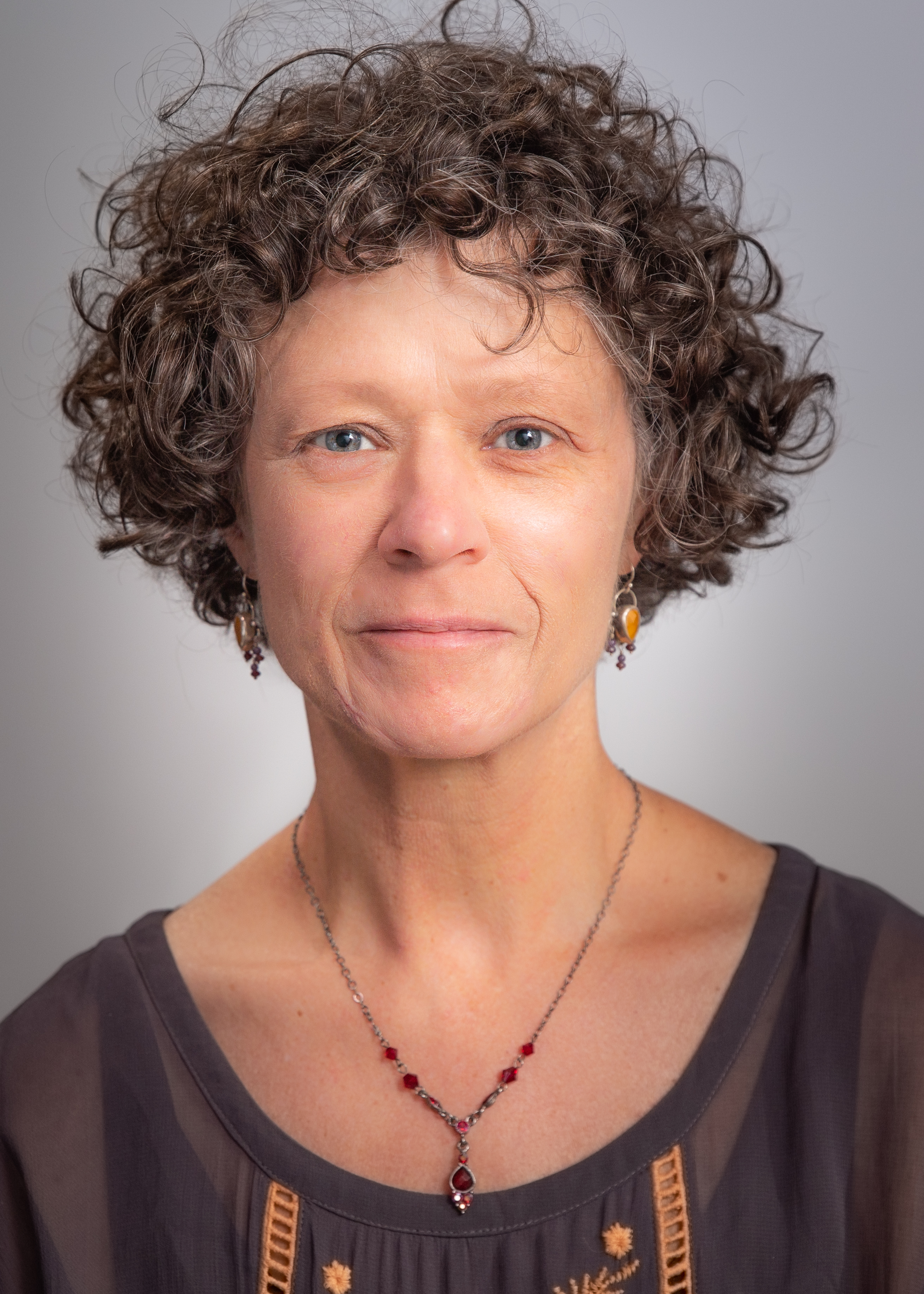 Janet Page-Reeves, PhD
Janet Page-Reeves, PhD
Email: JPage-Reeves@salud.unm.edu
Dr. Page-Reeves is a member of the TREE Center’s Investigator Development Core (IDC), developing and implementing a successful faculty pilot research project program. She is an Associate Professor, Department of Family & Community Medicine, and Director of Research, Office for Community Health.
Her PhD training is in political economic cultural anthropology. Her research interest/expertise are: health inequity/health equity, diabetes, social isolation, depression, gender studies, Latino health, Native American health, Native American success in STEM, food allergy, social determinants of health, social determinants screening, and community engaged research.
Aim 1. Develop and implement a pilot project (PP) program (3 new projects per year at $50K for postdoctoral scholars and junior faculty); related to the social determinants of BH, historical trauma, ACES, and the intersectional effects of poverty and discrimination.
Aim 2. Increase the number of underrepresented minority (URM) and non-URM post-doctoral students, junior faculty, and early stage investigators (BH intervention research).
Aim 3. Increase researcher capacity to conduct behavioral health disparities research by developing and implementing a mentorship model.
Aim 4. Develop novel approaches and methods to support junior researchers and new investigators.
 Matthew Borrego, PhD, MS, RPh
Matthew Borrego, PhD, MS, RPh
Email: Mboreggo@salud.unm.edu
Dr. Borrego is Co-Director of the TREE Center’s Investigator Development Core (IDC), developing and implementing a successful faculty pilot research project program. He is a Professor and Director of Graduate Studies, UNM College of Pharmacy.
He is a Pharmacist and PhD trained in Pharmacoeconomics /health outcomes research. His research interest/expertise are: Pharmacoeconomics/ health outcomes, health policy, health disparities, health literacy, survey research, interprofessional education and pharmacy education /practice issues.
 Theresa H Cruz, PhD
Theresa H Cruz, PhD
Email: Thcruz@salud.unm.edu
Dr. Cruz is the Co-Director of the TREE Center’s Investigator Development Core (IDC), developing and implementing a successful pilot research project program. She is a Research Associate Professor in the UNM Department of Pediatrics, and an Epidemiologist and Deputy Director of the CDC-funded University of New Mexico Prevention Research Center (PRC).
She is involved with the UNM PRC Education and is Training Core Lead with experience developing and implementing training for faculty, staff, students and community partners. Dr. Cruz’s research interests and expertise are: Community-engaged research, translation and dissemination research, primary prevention, and injury and violence prevention, particularly in the areas of adverse childhood experiences, prescription drug overdose, sexual violence prevention and suicide prevention.
 Janet Page-Reeves, PhD
Janet Page-Reeves, PhD
Email: JPage-Reeves@salud.unm.edu
Dr. Page-Reeves is a member of the TREE Center’s Investigator Development Core (IDC), developing and implementing a successful faculty pilot research project program. She is an Associate Professor, Department of Family & Community Medicine, and Director of Research, Office for Community Health.
Her PhD training is in political economic cultural anthropology. Her research interest/expertise are: health inequity/health equity, diabetes, social isolation, depression, gender studies, Latino health, Native American health, Native American success in STEM, food allergy, social determinants of health, social determinants screening, and community engaged research.
Aim 1. Facilitate collaborative academic and community/tribal partnerships to mutually advance health disparities transdisciplinary intervention research.
Aim 2. Cultivate bi-directional learning and mentoring opportunities for academic and community and tribal stakeholders aimed at creating intersections of community knowledge and practice with evidence-based knowledge.
Aim 3. Work with community and tribal stakeholders throughout the state of New Mexico to translate and co-disseminate research findings.
We cultivate vibrant communities of practice for disseminating (COP4D) culturally defined practices and evidence including: Chimayo/Rio Arriba County; Gallup with the San Juan Collaborative; Dine Centered Evaluation Research Group (Shiprock); Hobbs (Lea County) and Las Cruces and the Paso del Norte Region. Goals of the COP4D meetings have been to support new research and dissemination of community-based practices and evidence based research findings for action plans in the respective regions. A few examples include: Development of Digital Policy Stories to illucidate the power of “querencia” for healing the root causes of opioid and other addictions in Chimayo; and development of a series of infographics with the Pacific Research Institute for Research and Evaluation which focus on access to care resiliency as a protective factor of LGBTQ health equity.
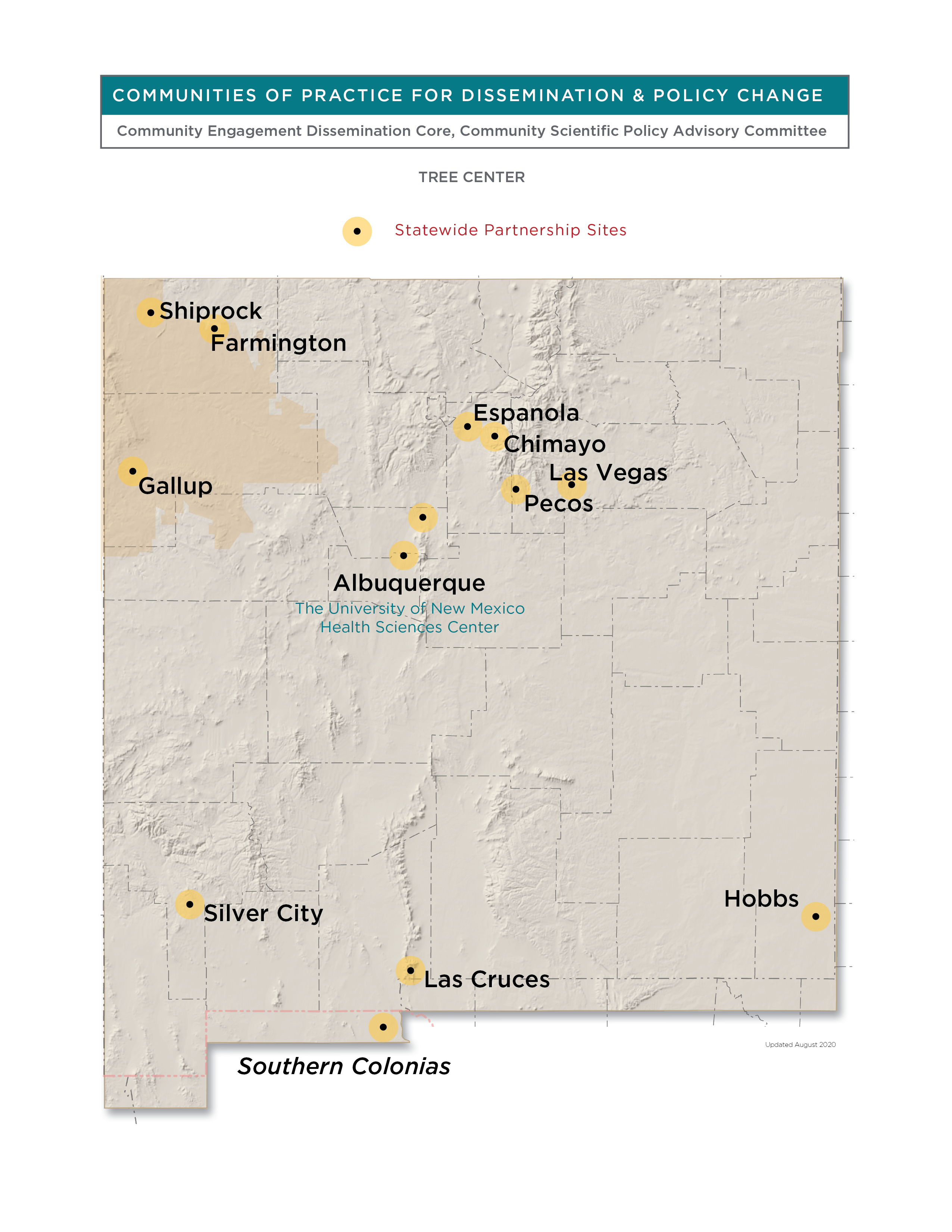
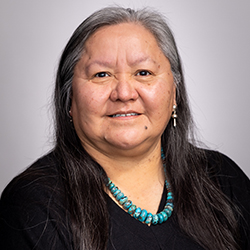 Lorenda Belone, PhD, MPH (Co-Director)
Lorenda Belone, PhD, MPH (Co-Director)
Email: lorenda@unm.edu
Dr. Belone, Professor, College of Population Health, UNM, is Co-Director of the Community Engagement and Dissemination Core, TREE U54 Center Grant). She is Diné/Navajo and a Professor within the University of New Mexico’s (UNM) Community Health Education Program, College of Education and Human Sciences, Health, Exercise and Sports Sciences Department.
Dr. Belone is PI for the Family Listening Program (FLP) Project which has involved the development of three distinct American Indian FLP prevention programs in which an evidence based and culturally centered family curriculum was created (U26IHS300287/04 & U26IHS300009/A) and is now undergoing rigorous testing though National Institute on Drug Abuse funding (NIDA 1R01 DA037174-05, 2014-21).
She is Co-Investigator on a National Institute of Nursing Research funded (NINR 1R01NR015241-01A1, 2015-20, Wallerstein, PI) study called Advancing CBPR Practice Through a Collective Reflection and Measurement Toolkit, to improve the science of measurement within community engaged research (CEnR) to meet the needs of academic-community research partnerships nation-wide.
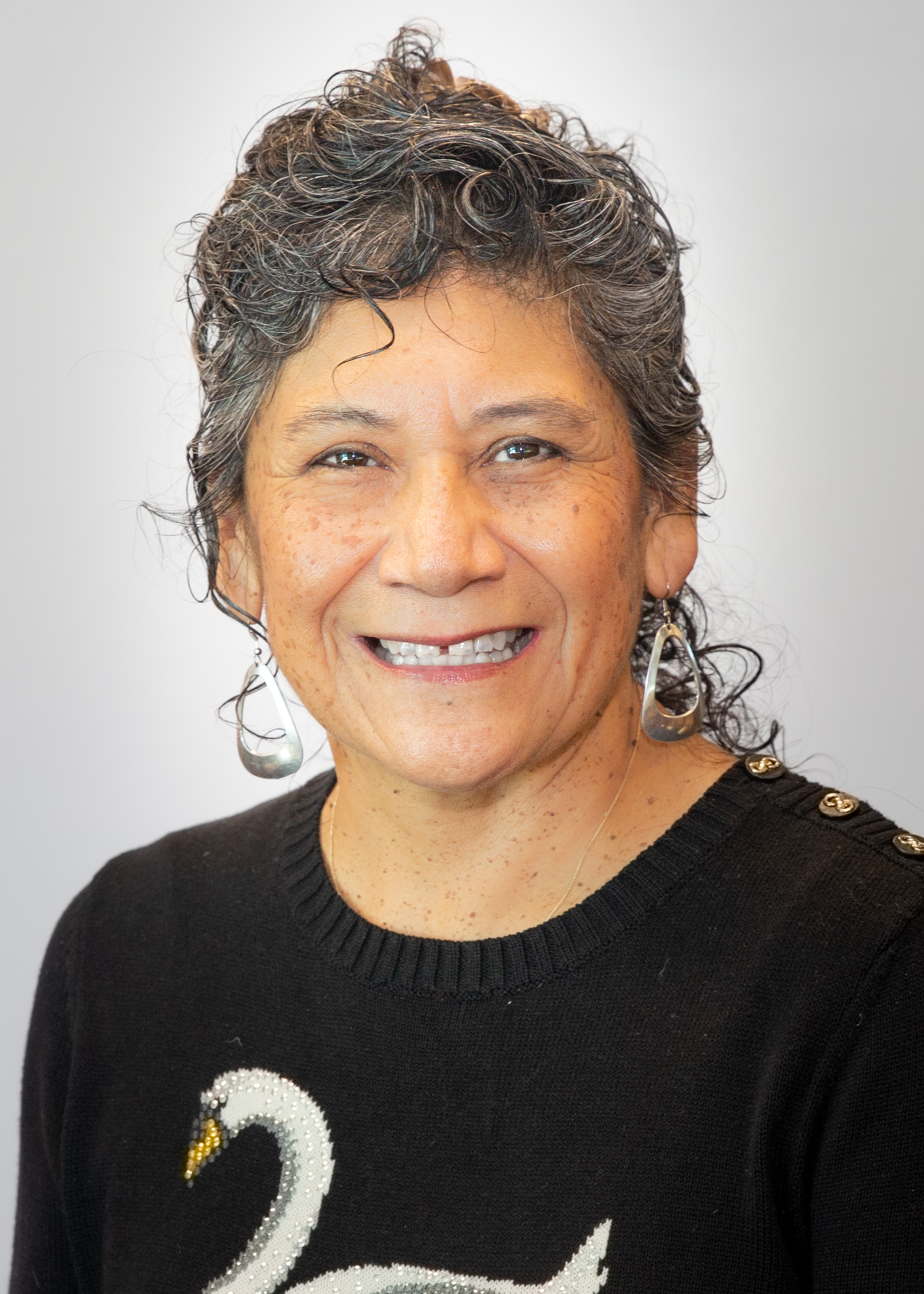 Magdalena Avila, DrPH, MPH, MSW (Co-Director of the Community Engagement and Dissemination Core, TREE U54 Center Grant)
Magdalena Avila, DrPH, MPH, MSW (Co-Director of the Community Engagement and Dissemination Core, TREE U54 Center Grant)
Email: avilam@unm.edu
Dr. Avila is Co-Director of the Community Engagement and Dissemination Core, TREE U54 Center Grant. She is a visiting Associate Professor with the College of Population Health, University of New Mexico. Her extensive background includes Community-Based Participatory Research, Community Engagement, Social Justice Research and Community Health- working with and in communities of color.
She is a Public Health Researcher partnering with New Mexican communities to address inequities in health. Dr. Avila has community-based ethnographies-expertise in framing community ways of knowing and understanding as it relates to public health research and designing culturally relevant interventions.
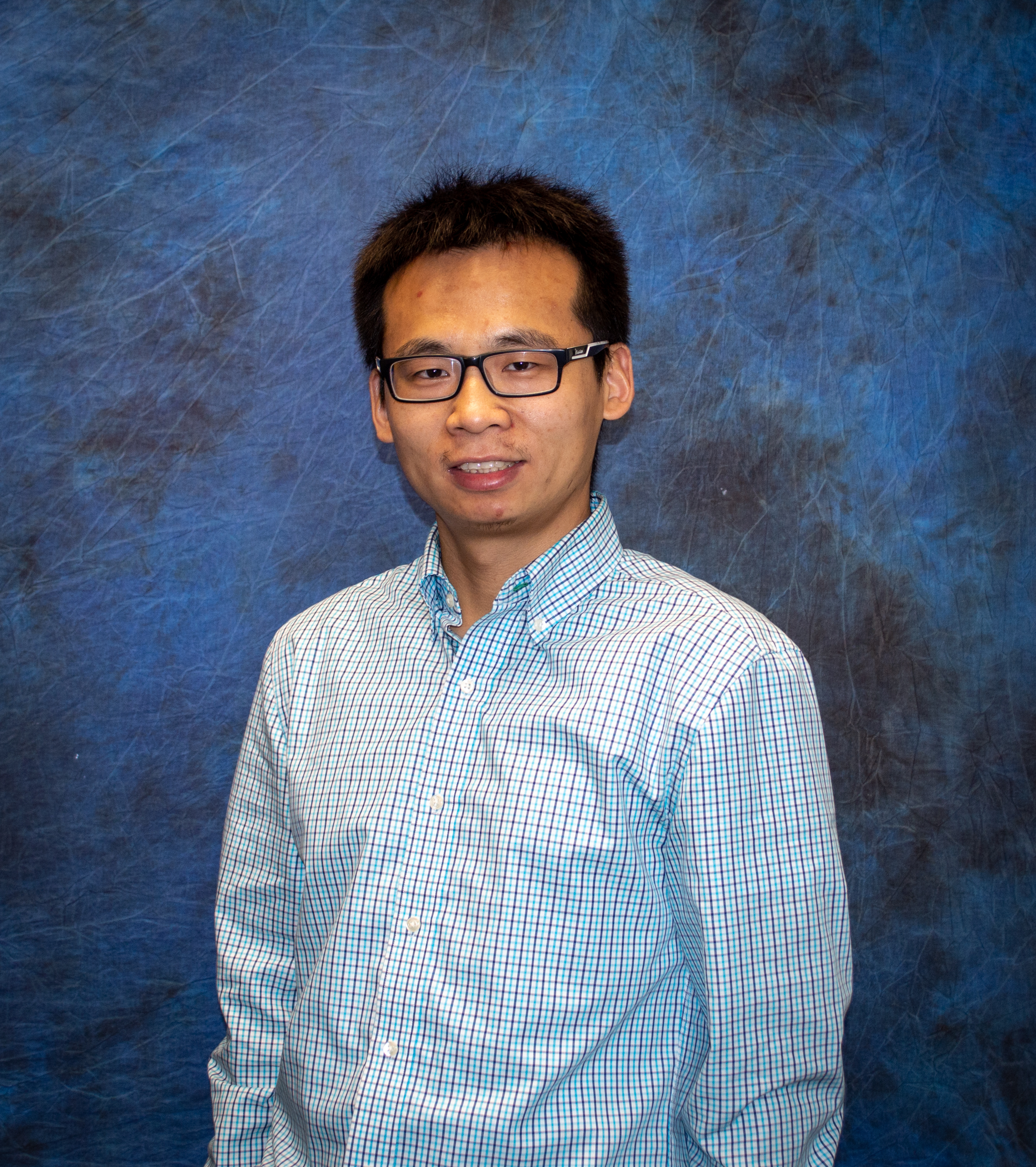 Shixi Zhao, PhD, CHES
Shixi Zhao, PhD, CHES
Email: shixizhao@unm.edu
Dr. Zhao, CHES., Assistant Professor, College of Population Health, UNM, is a member of the TREE Center’s Community Engagement and Dissemination Core (CEDC). He is an Assistant Professor in College of Population Health at the University of New Mexico. He is a health behavior social scientist, with specific training and expertise in public health genomics, mental behavioral health, community-participatory research, as well as health behavioral assessment and measurement. Dr. Zhao is a Public Health Researcher collaborating with New Mexico Asian communities to address inequities in mental behavioral health.
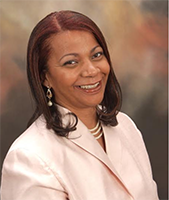 Dr. Nina Cooper, PhD
Dr. Nina Cooper, PhD
Email: nmcooper@unm.edu
A native of Chicago, Nina has been a part of the cultural fabric of New Mexico for more than 20 years. She earned her Bachelor of Arts in English, Professional Writing, from the University of New Mexico, her Master of Arts in Communication with an emphasis on Health & Culture from the University of New Mexico and PhD from UNM in Communications and Journalism. Nina’s research focuses on communication as a mechanism for social justice to redress health inequities. Nina’s work utilizes the lenses of critical race theory, participatory action research, and ethnography in her work. Her work with the Communities of Practice Network (CEDC) under the TREE Center, allows her to implement her skills into working with community voices for Health Equity.
 Lisa Cacari Stone, PhD, (purepecha/mestiza), Professor, College of Population Health
Lisa Cacari Stone, PhD, (purepecha/mestiza), Professor, College of Population Health
TREE Director/PI
Email: LCacari-Stone@salud.unm.edu
Dr. Cacari Stone has dedicated over 30 years of population health science aimed at advancing health equity for diverse racial, under-resourced, rural and Latinx and immigrant populations.
She brings direct experience in health policy, child and social welfare as a former licensed behavioral health provider, director for a home visiting child welfare program, director of senior services, executive director of a rural federally qualified mental health clinic, state health officer and federal women’s health liaison with the U.S. Department of Health and Human Services and policy fellow with the Health Education, Labor and Pensions Committee and Senator "Ted" Kennedy.
Her scholarly portfolio is comprised of over $26 million in grants from private and public funders and encompasses the macro-level determinants of health (e.g. health reform, immigration policies), to the community level (e.g.Tool for Health and Resilience in Vulnerable Environments in frontier border communities), to the interpersonal level (e.g. role of promotores de salud in bridging patient-provider communications).
She has written multiple articles (i.e. Health Affairs, American Journal of Public Health, Academic Medicine) and policy reports and delivered over 100 research presentations to academic, community and policy audiences at the national, binational and state/local levels. Dr. Cacari Stone came to UNM after completing prestigious fellowships with the top thought leaders in social determinants of health at Harvard and training at the top-rated health/social policy school in the nation- Heller, Brandeis University.
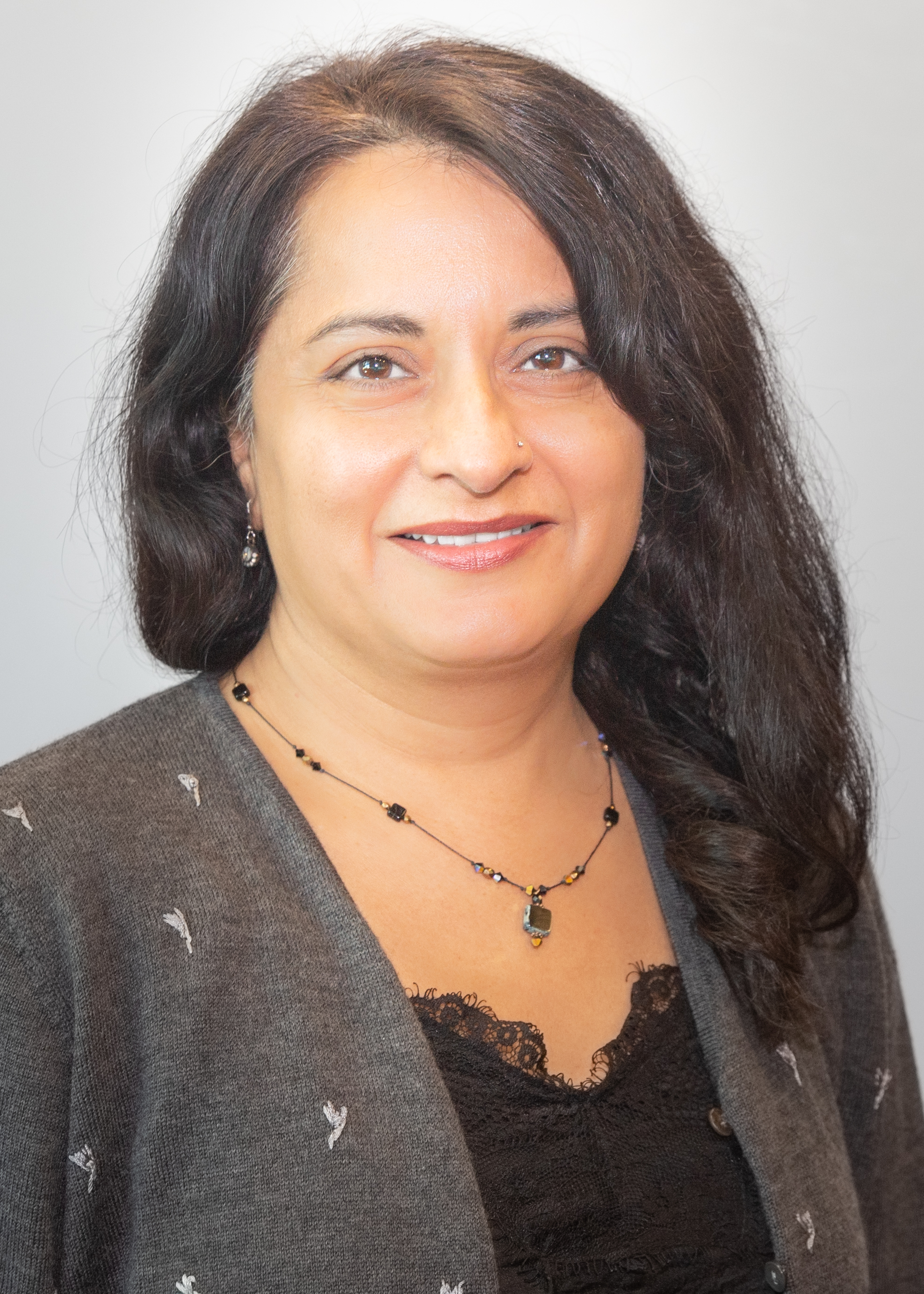 Kiran Kitira, PhD, MPI (2008 -2020)
Kiran Kitira, PhD, MPI (2008 -2020)
Email: kkatira@unm.edu
Dr. Katira is the Director of the UNM Community Engagement Center. She is a Fellow with NACA Inspired Schools Network, where she designs and implements an indigenized charter school for the multiracial community in the International District.
Dr. Katira has over twenty years of experience working alongside local community organizers and leaders in NM, which includes networks for social transformation such as Families United for Education. She oversees two anti-racist youth leadership development programs for local youth of color in NM, which include Public Allies and UNM Service Corps.
Dr. Katira has over twenty years of experience as a professional trainer and coach on race relations and undoing structural racism through local initiatives such as Antiracism Youth Leadership Institute and nationally as a trainer with the People's Institute for Survival and Beyond. Dr. Katira has over twenty years of expertise in community networking and coalition building, which she brings to classes taught at the University and to research conducted.
Victoria Sánchez, DrPH, MPH (2007 - 2019)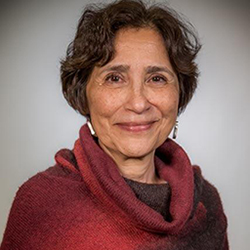
Victoria Sánchez is an Associate Professor in the College of Population Health (COPH), University of New Mexico. She earned her M.P.H. at the University of California at Berkeley and her Doctorate in Public Health (DrPH) in Health Behavior and Health Education at the University of North Carolina at Chapel Hill. She teaches social and behavioral sciences courses for the COPH. She is currently working with multi-disciplinary research in exploring how public health organizations integrate health equity into their plans and interventions and, testing and refining Community-Based Participatory Research (CBPR) partnering and outcome measures.
Jonwong Lee, PhD, RN
Email: jwlee@salud.unm.edu
Jongwon Lee, PhD, RN, associate professor at The University of New Mexico College of Nursing, focuses her research on women’s health, the development and psychometric evaluations of instruments, and the role of a culture of honor on preventive health behaviors. She teaches both undergraduate and graduate-level classes.
Dr. Lee attended the State University of New York at Buffalo, School of Nursing, where she earned her Doctor of Philosophy in Nursing and Master of Nursing Science degrees, focusing on maternal and women's health. She earned her Registered Nurse-to-Bachelor of Science in Nursing degree from Yonsei University and her Diploma in Nursing from the National Medical Center College of Nursing in Seoul, South Korea.
Aim 1. Facilitate collaborative academic and community/tribal partnerships to mutually advance health disparities transdisciplinary intervention research.
Aim 2. Cultivate bi-directional learning and mentoring opportunities for academic and community and tribal stakeholders aimed at creating intersections of community knowledge and practice with evidence-based knowledge.
Aim 3. Work with community and tribal stakeholders throughout the state of New Mexico to translate and co-disseminate research findings.
We cultivate vibrant communities of practice for disseminating (COP4D) culturally defined practices and evidence including: Chimayo/Rio Arriba County; Gallup with the San Juan Collaborative; Dine Centered Evaluation Research Group (Shiprock); Hobbs (Lea County) and Las Cruces and the Paso del Norte Region. Goals of the COP4D meetings have been to support new research and dissemination of community-based practices and evidence based research findings for action plans in the respective regions. A few examples include: Development of Digital Policy Stories to illucidate the power of “querencia” for healing the root causes of opioid and other addictions in Chimayo; and development of a series of infographics with the Pacific Research Institute for Research and Evaluation which focus on access to care resiliency as a protective factor of LGBTQ health equity.

 Lorenda Belone, PhD, MPH (Co-Director)
Lorenda Belone, PhD, MPH (Co-Director)
Email: lorenda@unm.edu
Dr. Belone, Professor, College of Population Health, UNM, is Co-Director of the Community Engagement and Dissemination Core, TREE U54 Center Grant). She is Diné/Navajo and a Professor within the University of New Mexico’s (UNM) Community Health Education Program, College of Education and Human Sciences, Health, Exercise and Sports Sciences Department.
Dr. Belone is PI for the Family Listening Program (FLP) Project which has involved the development of three distinct American Indian FLP prevention programs in which an evidence based and culturally centered family curriculum was created (U26IHS300287/04 & U26IHS300009/A) and is now undergoing rigorous testing though National Institute on Drug Abuse funding (NIDA 1R01 DA037174-05, 2014-21).
She is Co-Investigator on a National Institute of Nursing Research funded (NINR 1R01NR015241-01A1, 2015-20, Wallerstein, PI) study called Advancing CBPR Practice Through a Collective Reflection and Measurement Toolkit, to improve the science of measurement within community engaged research (CEnR) to meet the needs of academic-community research partnerships nation-wide.
 Magdalena Avila, DrPH, MPH, MSW (Co-Director of the Community Engagement and Dissemination Core, TREE U54 Center Grant)
Magdalena Avila, DrPH, MPH, MSW (Co-Director of the Community Engagement and Dissemination Core, TREE U54 Center Grant)
Email: avilam@unm.edu
Dr. Avila is Co-Director of the Community Engagement and Dissemination Core, TREE U54 Center Grant. She is a visiting Associate Professor with the College of Population Health, University of New Mexico. Her extensive background includes Community-Based Participatory Research, Community Engagement, Social Justice Research and Community Health- working with and in communities of color.
She is a Public Health Researcher partnering with New Mexican communities to address inequities in health. Dr. Avila has community-based ethnographies-expertise in framing community ways of knowing and understanding as it relates to public health research and designing culturally relevant interventions.
 Shixi Zhao, PhD, CHES
Shixi Zhao, PhD, CHES
Email: shixizhao@unm.edu
Dr. Zhao, CHES., Assistant Professor, College of Population Health, UNM, is a member of the TREE Center’s Community Engagement and Dissemination Core (CEDC). He is an Assistant Professor in College of Population Health at the University of New Mexico. He is a health behavior social scientist, with specific training and expertise in public health genomics, mental behavioral health, community-participatory research, as well as health behavioral assessment and measurement. Dr. Zhao is a Public Health Researcher collaborating with New Mexico Asian communities to address inequities in mental behavioral health.
 Dr. Nina Cooper, PhD
Dr. Nina Cooper, PhD
Email: nmcooper@unm.edu
A native of Chicago, Nina has been a part of the cultural fabric of New Mexico for more than 20 years. She earned her Bachelor of Arts in English, Professional Writing, from the University of New Mexico, her Master of Arts in Communication with an emphasis on Health & Culture from the University of New Mexico and PhD from UNM in Communications and Journalism. Nina’s research focuses on communication as a mechanism for social justice to redress health inequities. Nina’s work utilizes the lenses of critical race theory, participatory action research, and ethnography in her work. Her work with the Communities of Practice Network (CEDC) under the TREE Center, allows her to implement her skills into working with community voices for Health Equity.
 Lisa Cacari Stone, PhD, (purepecha/mestiza), Professor, College of Population Health
Lisa Cacari Stone, PhD, (purepecha/mestiza), Professor, College of Population Health
TREE Director/PI
Email: LCacari-Stone@salud.unm.edu
Dr. Cacari Stone has dedicated over 30 years of population health science aimed at advancing health equity for diverse racial, under-resourced, rural and Latinx and immigrant populations.
She brings direct experience in health policy, child and social welfare as a former licensed behavioral health provider, director for a home visiting child welfare program, director of senior services, executive director of a rural federally qualified mental health clinic, state health officer and federal women’s health liaison with the U.S. Department of Health and Human Services and policy fellow with the Health Education, Labor and Pensions Committee and Senator "Ted" Kennedy.
Her scholarly portfolio is comprised of over $26 million in grants from private and public funders and encompasses the macro-level determinants of health (e.g. health reform, immigration policies), to the community level (e.g.Tool for Health and Resilience in Vulnerable Environments in frontier border communities), to the interpersonal level (e.g. role of promotores de salud in bridging patient-provider communications).
She has written multiple articles (i.e. Health Affairs, American Journal of Public Health, Academic Medicine) and policy reports and delivered over 100 research presentations to academic, community and policy audiences at the national, binational and state/local levels. Dr. Cacari Stone came to UNM after completing prestigious fellowships with the top thought leaders in social determinants of health at Harvard and training at the top-rated health/social policy school in the nation- Heller, Brandeis University.
 Kiran Kitira, PhD, MPI (2008 -2020)
Kiran Kitira, PhD, MPI (2008 -2020)
Email: kkatira@unm.edu
Dr. Katira is the Director of the UNM Community Engagement Center. She is a Fellow with NACA Inspired Schools Network, where she designs and implements an indigenized charter school for the multiracial community in the International District.
Dr. Katira has over twenty years of experience working alongside local community organizers and leaders in NM, which includes networks for social transformation such as Families United for Education. She oversees two anti-racist youth leadership development programs for local youth of color in NM, which include Public Allies and UNM Service Corps.
Dr. Katira has over twenty years of experience as a professional trainer and coach on race relations and undoing structural racism through local initiatives such as Antiracism Youth Leadership Institute and nationally as a trainer with the People's Institute for Survival and Beyond. Dr. Katira has over twenty years of expertise in community networking and coalition building, which she brings to classes taught at the University and to research conducted.
Victoria Sánchez, DrPH, MPH (2007 - 2019)
Victoria Sánchez is an Associate Professor in the College of Population Health (COPH), University of New Mexico. She earned her M.P.H. at the University of California at Berkeley and her Doctorate in Public Health (DrPH) in Health Behavior and Health Education at the University of North Carolina at Chapel Hill. She teaches social and behavioral sciences courses for the COPH. She is currently working with multi-disciplinary research in exploring how public health organizations integrate health equity into their plans and interventions and, testing and refining Community-Based Participatory Research (CBPR) partnering and outcome measures.
Jonwong Lee, PhD, RN
Email: jwlee@salud.unm.edu
Jongwon Lee, PhD, RN, associate professor at The University of New Mexico College of Nursing, focuses her research on women’s health, the development and psychometric evaluations of instruments, and the role of a culture of honor on preventive health behaviors. She teaches both undergraduate and graduate-level classes.
Dr. Lee attended the State University of New York at Buffalo, School of Nursing, where she earned her Doctor of Philosophy in Nursing and Master of Nursing Science degrees, focusing on maternal and women's health. She earned her Registered Nurse-to-Bachelor of Science in Nursing degree from Yonsei University and her Diploma in Nursing from the National Medical Center College of Nursing in Seoul, South Korea.
UNM Transdisciplinary Research, Equity and Engagement Center for Advancing Behavioral Health (TREE Center)
1011 Las Lomas Rd NE
Albuquerque, NM 87102
MSC07-4265
1 University of New Mexico
Albuquerque, NM 87131
NIMHD Grant #U54 MD004811-10
Office: 505-243-6803
Director and Principal Investigator
Lisa Cacari Stone, PhD, MS, MA (ella y suya/ she, her and hers)
lcacari-stone@salud.unm.edu
Email: treecenter@unm.edu